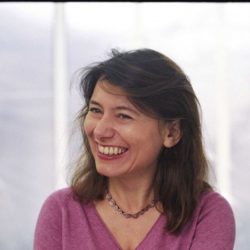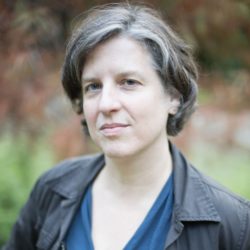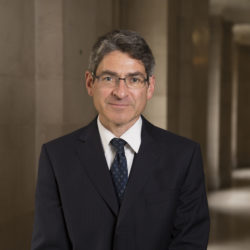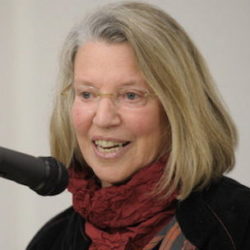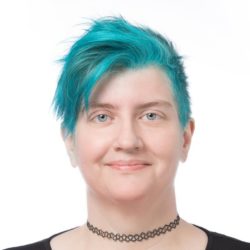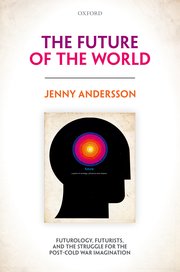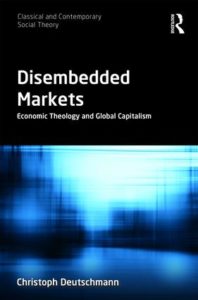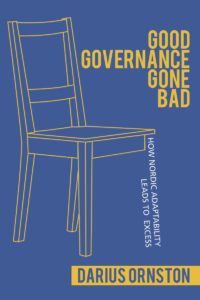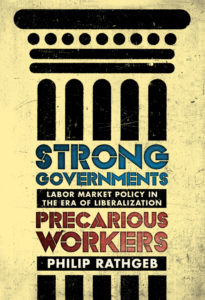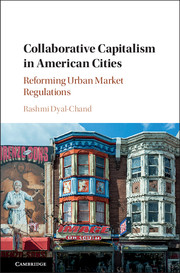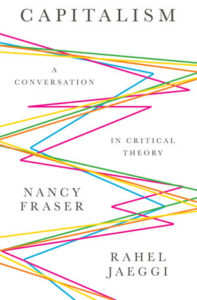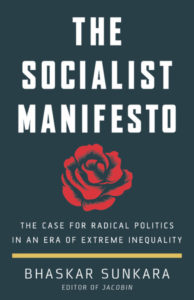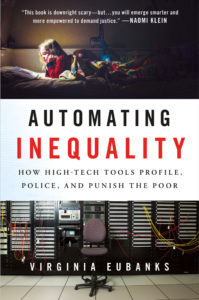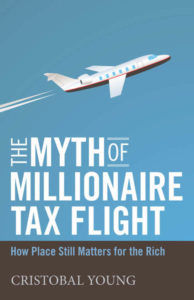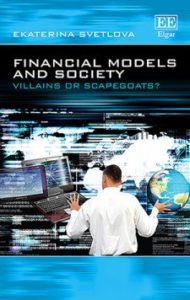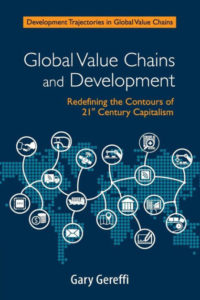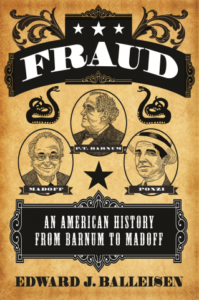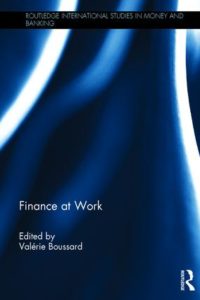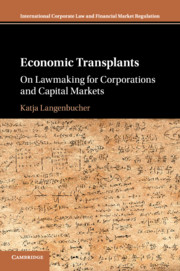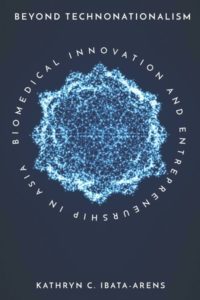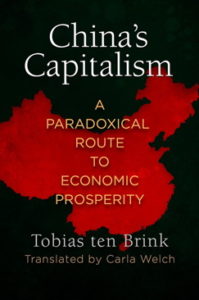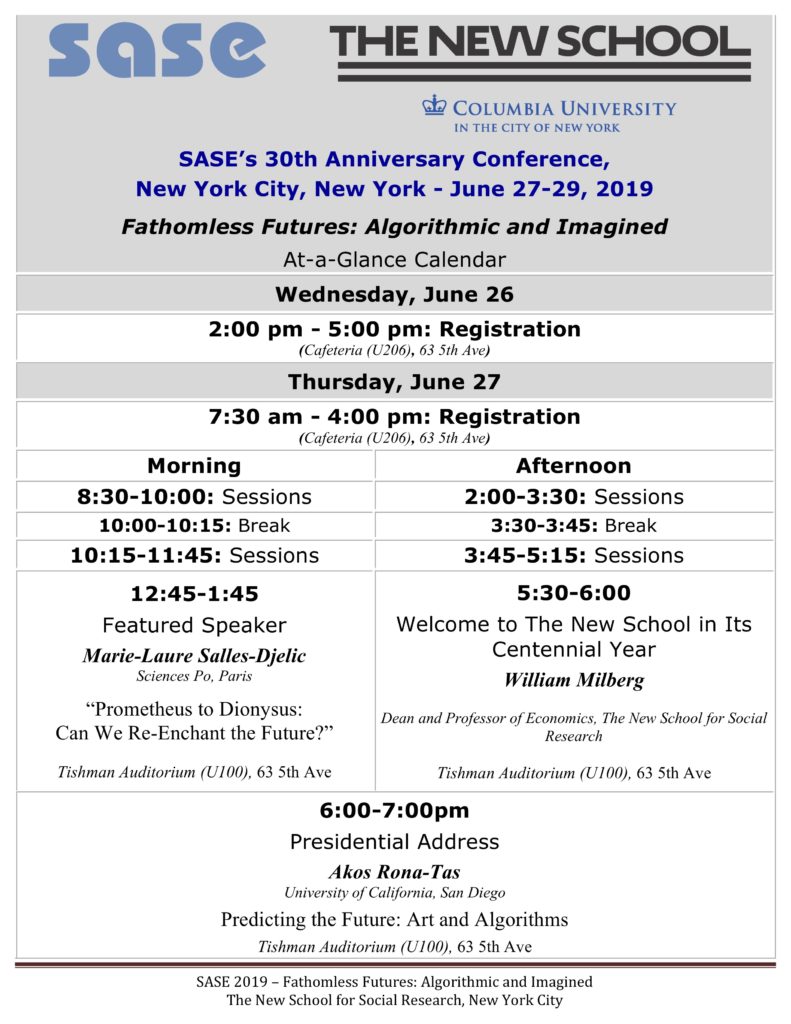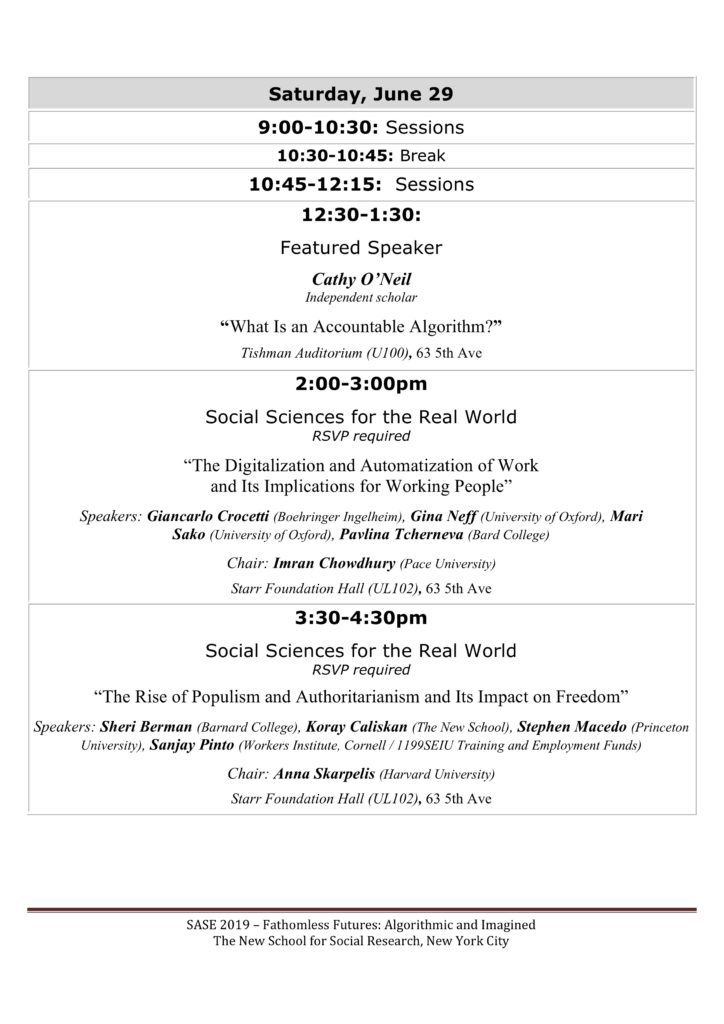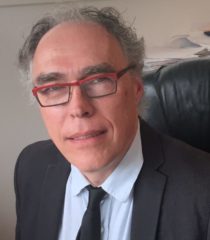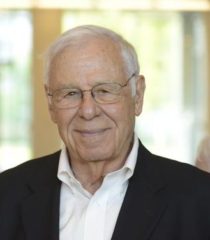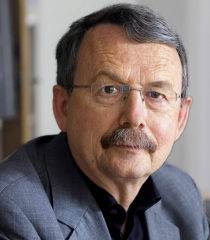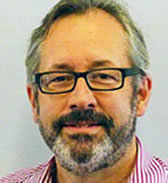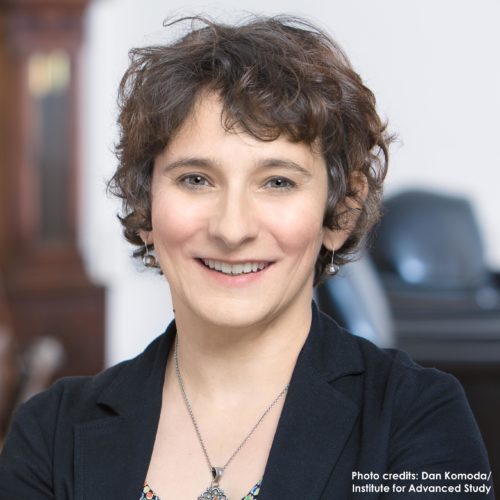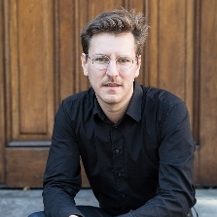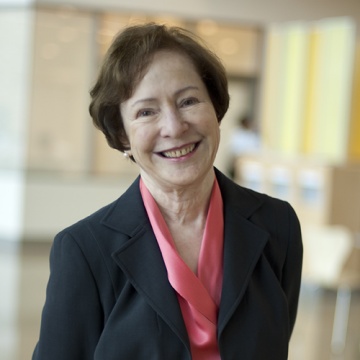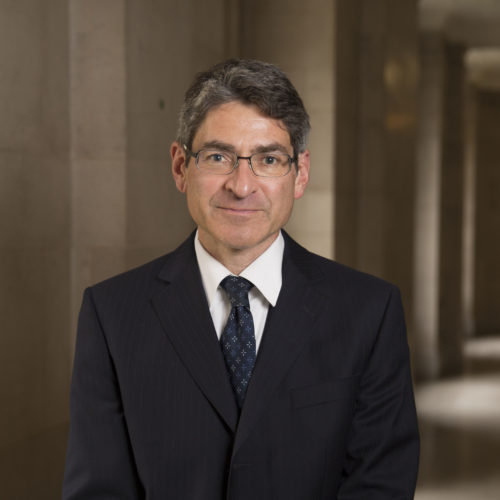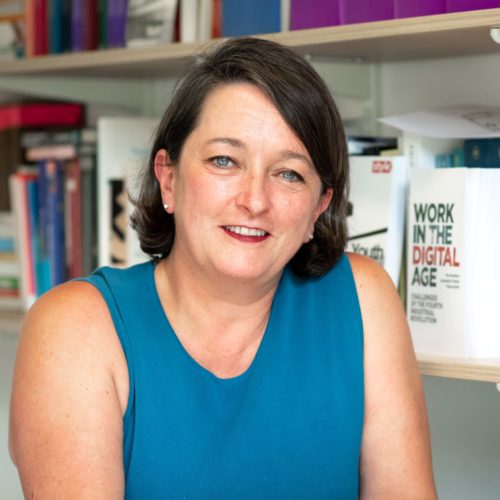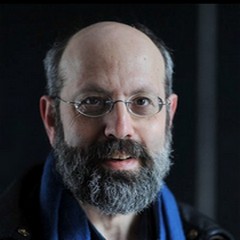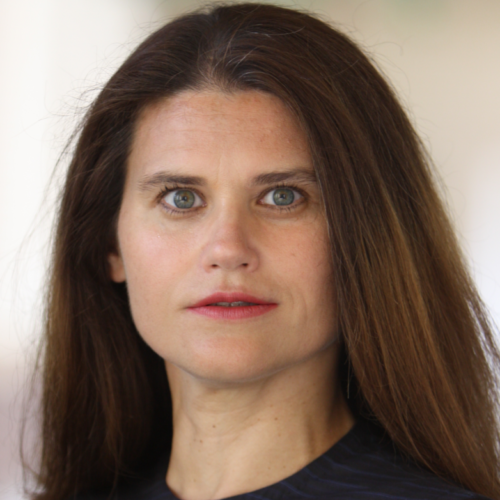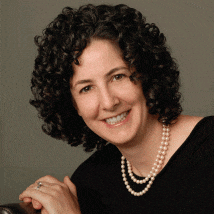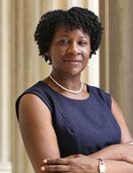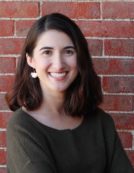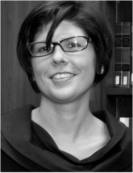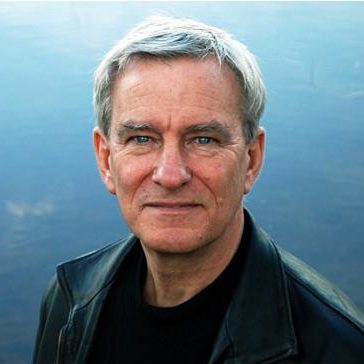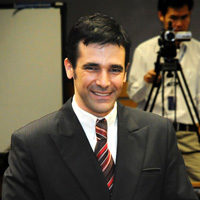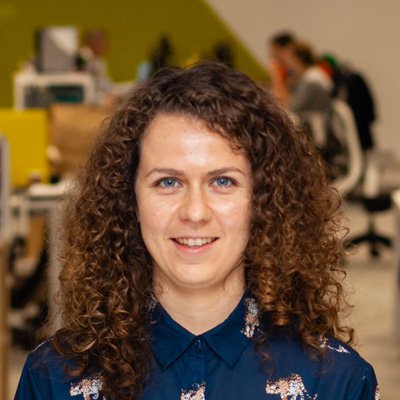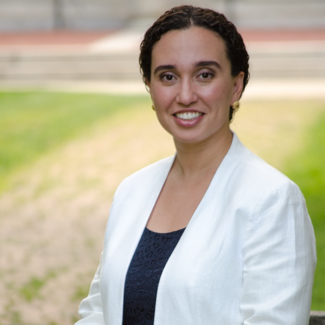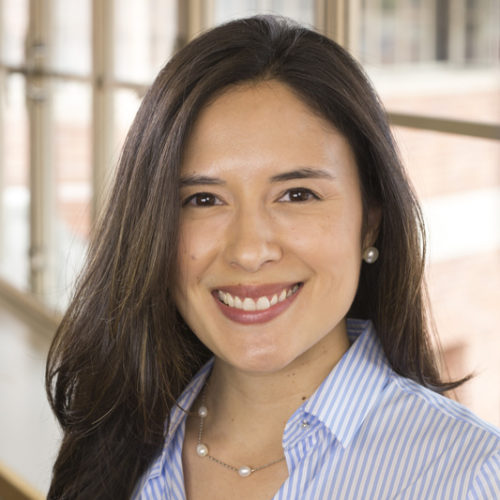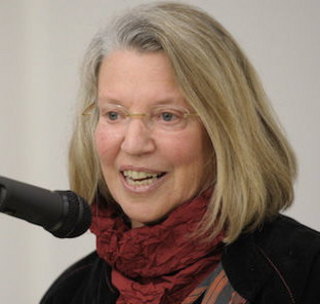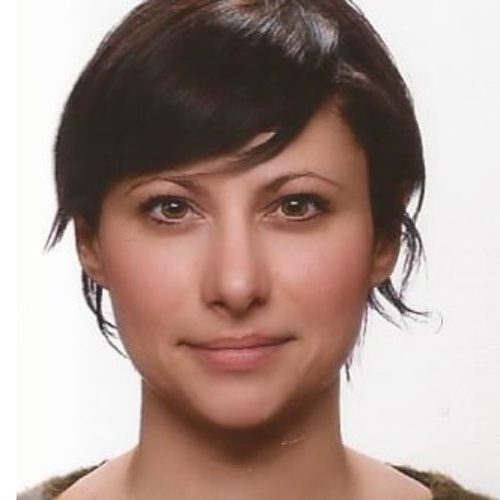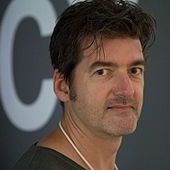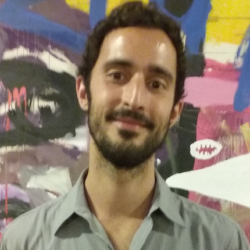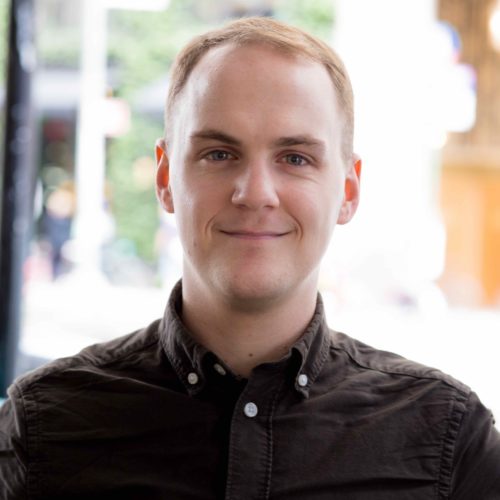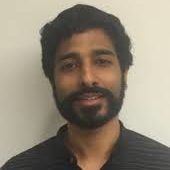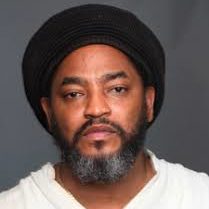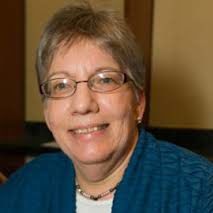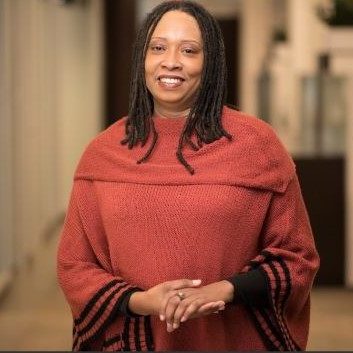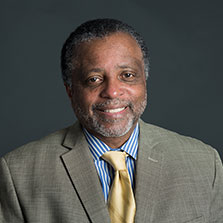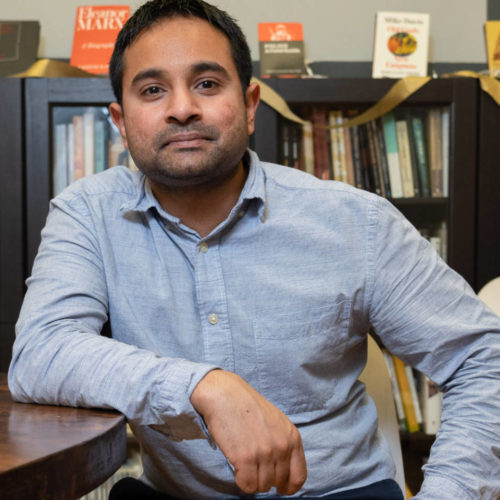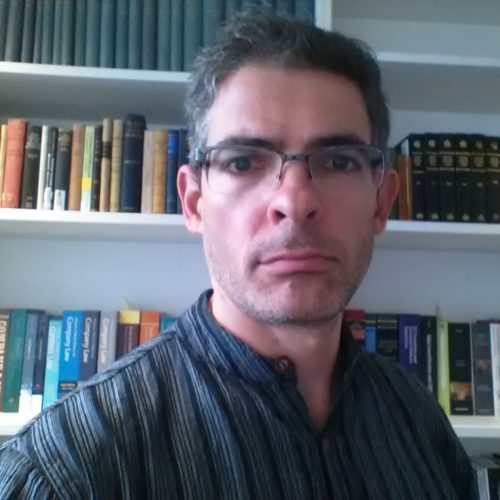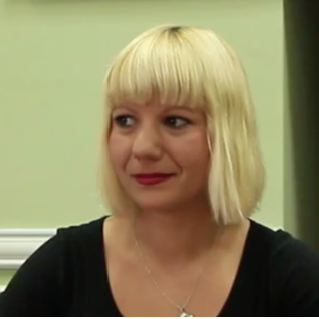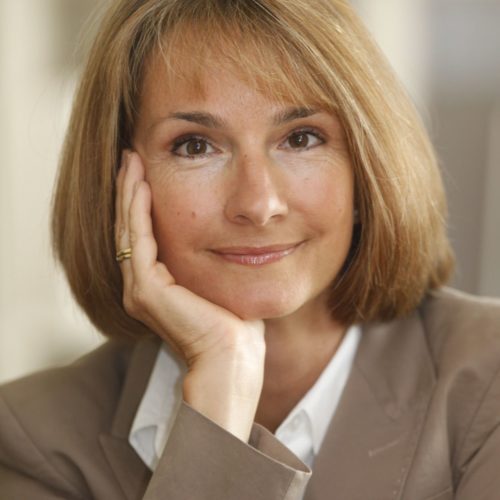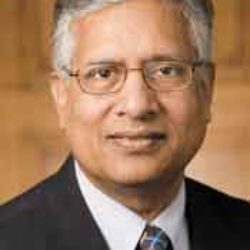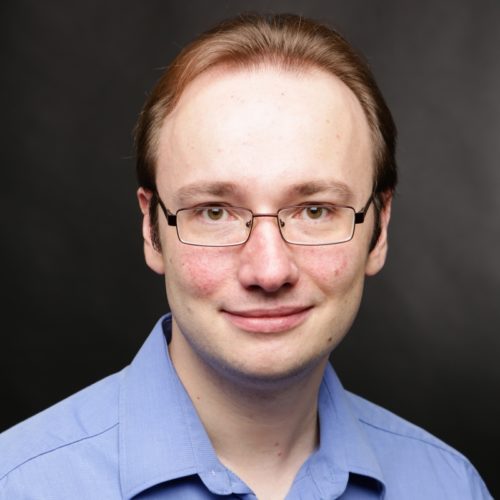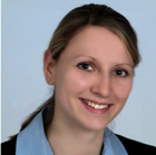Mabel Abraham is an Assistant Professor of Management at Columbia Business School. She studies gender inequality, entrepreneurship, and social networks. In her research, she examines how organizational and social network processes perpetuate gender inequality across a number of outcomes and unique empirical contexts.
Mini-Conference Themes
Each mini-conference will consist of 3 to 6 panels, which will be featured as a separate stream in the program. Each panel will have a discussant, meaning that selected participants must submit a completed paper in advance, by 6 May 2019. Submissions for panels will be open to all scholars on the basis of an extended abstract. If a paper proposal cannot be accommodated within a mini-conference, organizers will forward it to the most appropriate research network as a regular submission.
Algorithmic Prediction vs. Shared Uncertainty: Social Consequences of Individualized Forecast
detailed info Alberto Cevolini
Alberto Cevolini
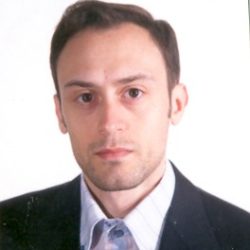
Prof. Dr. Alberto Cevolini teaches sociology at the University of Modena and Reggio Emilia (Italy). He was fellow of the Alexander von Humboldt Foundation at the University of Constance (2010-2012). His research deals with social systems theory, sociology of knowledge and intellectual history. He is working on a sociological theory of insurance institution. Selected publications: ‘Time Construction in Insurance Society’, Journal of Historical Sociology, 29(2), 2016, pp. 160-181; ‘Der Preis der Hoffnung’, in A. Cevolini (Ed.): Die Ordnung des Kontingenten. Beiträge zur zahlenmäßigen Selbstbeschreibung der modernen Gesellschaft. Springer VS, 2014, pp. 177-207; ‘Coping with the Unknown. Time and Technology in Formal Organizations Searching for Safety’, Distinktion. Scandinavian Journal of Social Theory, 13(3), 2012, pp. 367-383; ‘Die Einrichtung der Versicherung als soziologisches Problem’, Sociologia Internationalis, (48)1, 2010, pp. 65-89.
 Elena Esposito
Elena Esposito

Prof. Dr. Elena Esposito is Professor of Sociology at the University Bielefeld and at the University Modena and Reggio Emilia. Working in a systems theory framework, she studies problems of time in social systems, including memory and forgetting, probability, fashion and transience, fiction, and the use of time in finance. Her current research projects focus on a sociology of algorithms and specifically on forms and consequences of algorithmic prediction. Esposito’s recent publications include ‘Artificial Communication? The Production of Contingency by Algorithms’, Zeitschrift für Soziologie, 46(4), 2017, pp. 249-265; ‘Algorithmic Memory and the Right to be Forgotten on the Web’, Big Data & Society, 4, 2017, pp. 1-11, and ‘Critique Without Crisis: Systems Theory as a Critical Sociology’, Thesis Eleven 143(1), 2017, pp. 18-27.
Recent advances in algorithmic forecasting promise to provide a predictive score for individual persons or singular events, thereby introducing a new way to manage the uncertainty of the future. However, knowing the future in advance is not only advantageous. In fact, for our society, uncertainty about the future is also a resource. Since modernity, various social institutions in different domains of social life have developed means of coping with ignorance of the future by starting with the one thing that we all share – uncertainty. With the support of probability calculus, uncertainty, which is shared by everyone because no one can know the future in the present, is treated collectively. The system of insurance, for example, distributes the risk of uncertain future damages over a pool of individuals; medicine treats everyone’s illnesses, not knowing who will need care; public policing manages and controls the widespread and undetermined possibility of criminal acts. The mini-conference will discuss what happens to the stabilized forms of management of the future when their first resource – shared uncertainty – is missing.
We particularly welcome contributions presenting empirical evidence or exploring theoretical aspects about the following issues:
– Solidarity and personalization. What happens to the model of mutualisation of risk and to the established forms of social solidarity when algorithms produce detailed information about individual futures? What are the consequences for high-risk or disadvantaged groups in different social areas?
– Inversion of Information Asymmetry. Could Big Data lead to a condition in which companies and public institutions know more about the citizens than the latter know about themselves? What are the disruptive and positive consequences of this possibility?
– Proactivity of prediction. The availability of precise and accurate forecasts should lead to overcome the reactive attitude and to intervene on possible damages before they happen. Who then is dealing with the present? How does this transformation of prevention activities affect fields such as insurance or policing?
– Is it possible to combine algorithmic prediction with established statistical methods? What experiences are available, for example in finance or in the medical field based on a statistical notion of health and therapeutic efficacy?
– “Right not to know” and “right to be forgotten”. We invite contributions that investigate the consequences of the excess of knowledge due to algorithmic management of information.
– Bias. Algorithms work with Big Data that are inevitably biased in many different ways, and the resulting forecasts risk confirming or reinforcing pre-existing inequalities. We welcome projects exploring the impact of bias when predictive techniques are used to direct preventive measures.
– Communication of intransparency. We are interested in discussing experiences that combine the “right to explanation” of citizens with the efficiency requirements of increasingly obscure algorithms.
Building the Present at the Expense of the Future? Market Liberalization and the Future of Democracy
detailed info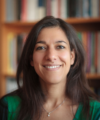 Margherita Bussi
Margherita Bussi
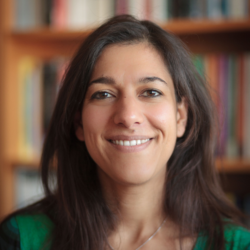
Margherita Bussi holds a PhD in Political Science from the University of Geneva. She is currently Post-Doctoral Fellow for the ERC Starting Grant Qualidem at the University of Louvain (Belgium) and associate researcher at the European Trade Union Institute (Brussels). Her research interests cover social policies and their implementation from a European and national perspective with a specific interested in activation policies, and the impact of public policy change on citizens.
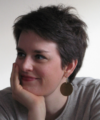 Claire Dupuy
Claire Dupuy
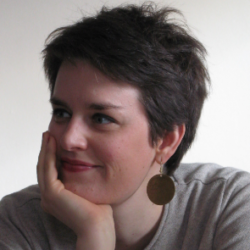
Claire Dupuy is an associate professor of political science at Sciences Po Grenoble – PACTE, France. She specializes in comparative public policy with a focus on state transformations and regionalization processes in Western Europe. She is also interested in policy feedbacks and the ways in which policy changes impact on citizens’ (dis)affection toward politics.
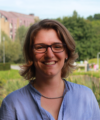 Virginie Van Ingelgom
Virginie Van Ingelgom
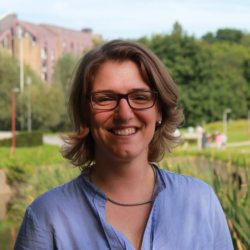
Virginie Van Ingelgom Research Associate Professor, Principal investigator in the ERC Starting Grant Qualidem, University of Louvain, Belgium. Her researches focus on the issue of legitimacy at both the national and the European levels, on democratic linkages and policy feedbacks and on the methodological issues of using qualitative comparative (re-)analysis.
 Luis Vila-Henninger
Luis Vila-Henninger
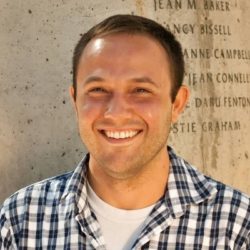
Luis Vila-Henninger holds a PhD in Sociology from the University of Arizona. He is currently a Post-Doctoral Fellow for the ERC Starting Grant Qualidem at the University of Louvain (Belgium). Luis’ research areas include economic sociology, political sociology, the sociology of culture, criminology, and sociological theory, and he specializes in qualitative methods.
What are the implications of market liberalization for the future of democracy? The future consolidation or erosion of western democracies depends in part on the political perceptions, experiences, and participation of ordinary citizens. The goal of this mini-conference, then, is to offer an arena for the (re)appraisal of citizens’ political disaffection as it relates to market liberalization. In particular, this call for papers focuses on understanding democratic disaffection in terms of “democratic linkages”—defined as the various ways in which citizens are connected in a structural and durable way to their political system (Kitschelt and Wilkinson, 2007). This definition includes political trust, political support, loyalty, and formal and informal participation. Questions about the nature and quality of “democratic linkages” are of increasing importance. A central yet often overlooked factor in the literature is the role that economic policy plays in structuring these linkages. From this perspective, then, we are interested in how market liberalization creates and changes structural relationships between citizens and democratic political systems. In particular, we invite papers that aim to explain the evolution of democratic linkages as market liberalization outcomes. This call for papers is organized around three key panels: Neoliberalism and Market Liberalization, Supranationalization and Market Liberalization, and Norms of Market Exchange as Democratic Linkages.
Neoliberalism and Market Liberalization: Changes in public policies in the past three decades have been characterized by neoliberal reform, i.e. “as involving a commitment to certain core principles focused on market competition and a limited state” (Schmidt & Thatcher 2013). This change is particularly relevant for welfare policies that are meant to redistribute resources and empower citizens. We welcome papers that investigate policy changes and the implications for citizens’ democratic linkages—and especially perspectives that seek to bridge the gap between the public policy and mass politics literatures.
Supranationalization and Market Liberalization: Supranationalization—such as European market integration policy—is omnipresent in the political and media spheres. However, the effects of such liberalization differs across national contexts and political elites: discourses may be negative or positive in nature, and may frame each process as being either contingent or inevitable. Both media and political elites tend to convey messages about the lack of citizens’ political agency in the context of supranational market liberalization. We invite contributions exploring how citizens view themselves in the context of such changes.
Norms of Market Exchange as Democratic Linkages: Much research demonstrates the importance of understanding citizens’ market relations from a normative—rather than rational choice—perspective. This literature emphasizes understanding the moral principles in which citizens are embedded and how they use such principles to legitimate their economic behavior and attitudes. By investigating how democratic linkages are shaped by market liberalization, we are led to investigate the normative elements of these linkages. We are interested in papers that explore the normative elements that emerge in contexts of market liberalization, e.g. moral economies.
Digitalization, Geographies of Production and Varieties of Digitized Capitalism
detailed info Florian Butollo
Florian Butollo
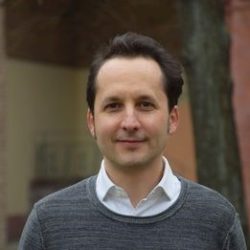
Florian Butollo is head of the research group “Working in Highly-Automated, Digital-Hybrid Processes” at the Weizenbaum Institute for the Networked Society in Berlin. He is expert and advisor for the German parliament’s enquete commission on the social impact of artificial intelligence. He holds a Ph.D. from the Goethe University Frankfurt (2014). Before the assignment in Berlin, he worked at the department of Labor, Industrial and Economic Sociology at the University of Jena and at the department of sociology at the University of Basel. His research interests include digitalization and labor, working conditions in global production networks, and the transformation of the Chinese capitalism. His recent research projects focus on the impact of digitalization on supply chains and working conditions. He has published in peer-reviewed journals and has authored books in particular on the changing worlds of work in China. His book The End of Cheap Labour? (Campus) was awarded the Jörg Huffschmid prize.
 Chun Yang
Chun Yang
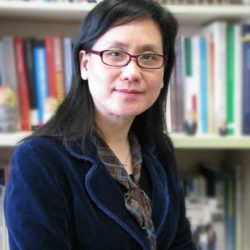
Chun Yang is professor at the department of geography of Hong Kong Baptist University and holds a Ph.D. from University of Hong Kong. She was visiting scholar at the Fairbank Center for Chinese Studies at the Harvard University and the University of Utah. She sits on the editorial board of the Journal of Economic Geography and is associate editor/co-editor of Regional Studies, Regional Science as well as Bandung: Journal of the Global South. Her research interests include urban and regional development, global production networks and transnational corporations, industrial clusters and foreign direct investment, regional innovation systems and indigenous innovation, cross-border regions and geopolitics of regional governance (e.g. Hong Kong-Pearl River Delta region), and economic development in China and Southeast Asia. She has published widely in peer-reviewed journals, in particular on global production networks and local cluster building processes, innovation systems, technological change and restructuring in China and Southeast Asia.
Despite a vibrant public and academic discussion on the impact of digitalization on enterprises and the worlds of work, academic studies on the relationship between digitalization and the transformation of actor relationships and institutional settings in the global economy are still scarce. This mini-conference aims to fill the research gap by focusing on contributions that analyze the relationships between technological change, global value chains (GVCs), and national models of capitalism.
It can be expected that digital technologies affect value chains and capitalist growth models in a number of ways. First, they shift the boundaries of automation by increasing versatility and lowering costs, which makes automation affordable for emerging economies. Second, internet-based coordination technologies and online platforms affect the governance of GVCs with implications for both the hierarchies and the geographies of production. Third, consumer data is used by firms to customize products and logistics chains, which results in an ever more important role for intangible assets in business strategies.
Digital technologies are thus changing the contours of today’s global economy. They affect inter-firm relationships in GVCs and shape national models of capitalism through the emergence of new players, the proliferation of new business models, and institutional innovation. Germany, China, and the US in particular are currently reinventing their agendas for socio-economic development, while the global economy risks slipping into an era of hostile protectionism. The outcome of these developments is still unknown. Digitalization may act as a vehicle for economic upgrading and business model innovation. However, it is also a contested field as each nation puts forward its own competitive digitalization agenda. It creates new winners, such as the platform economy’s leading newcomers, but the benefits are distributed unequally between countries, firms, and employees.
Yet digital technologies are not single-handedly generating socio-economic results. Their implementation is shaped by various actors in specific institutional settings. For instance, it is subject to secular developments such as the consolidation and regionalization of value chains in a context of shifting end markets and the rise of new global players from emerging markets. Rather than representing a consistent stage of economic organization (as implied by the term industry 4.0), digitalization affects industrial sectors in different ways, and institutional systems are adapting in idiosyncratic ways corresponding to government agendas for digitalization in each region.
The aim of this mini-conference is to fill the gap in current academic research on the relationship between digitalization, the transformation of value chains, and national models of capitalism. We invite contributions that analyze the following issues and identify linkages between them:
- Analyses of the transformation of national economic growth models, especially with a perspective on the characteristics of emerging varieties of digitalized capitalism;
- Analyses of changes in the geographies of manufacturing and services that are related to the implementation of new digital technologies;
- Studies of new business models and coordination mechanisms based on digital technologies and their implications for the governance of GVCs and institutional innovation.
Digitalizing and Fragmenting Labor: What Changes for (In)Equality and Diversity?
detailed info Rossella Bozzon
Rossella Bozzon
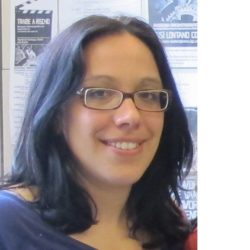
Rossella Bozzon is postdoctoral researcher at the Work and Employment Relations Division of the Business School, University of Leeds, United Kingdom. She is member of the ERC Project SHARE: Seizing the Hybrid Areas of Work by Re-presenting Self-Employment (2017-2022). Her research interests include welfare state and labour market transformations, non-standard employment relations, poverty and economic deprivation dynamics, gender inequalities and quantitative methods. Her work has been published, among others, in Journal of European Social Policy, European Societies, European Educational Research Journal.
 Annalisa Murgia
Annalisa Murgia
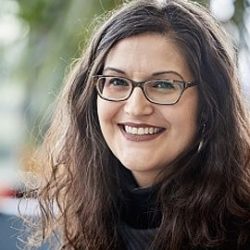
Annalisa Murgia is associate professor in Sociology at the Department of Social and Political Science of the University of Milan, Italy. She is the Principal Investigator of the ERC project SHARE: Seizing the Hybrid Areas of Work by Re-presenting Self-Employment (2017-2022). In 2015-2017, she coordinated the European FP7 project GARCIA – ‘Gendering the Academy and Research: Combating career Instability and Asymmetries’ at the University of Trento. Her current scientific production is articulated in three main directions. The first one explores the role of subjectivity in shaping individual biographies, paying specific attention to precarious workers. The second research area investigates the emerging forms of coalition in relation to the current crisis of the traditional models of collective representation. The third line of research lies in the debate on the construction of gender differences in organisations. Her work has been published, among others, in Organization, Gender, Work & Organization, Research in the Sociology of Organizations, Management Learning, Journal of Cultural Economy, Equality, Diversity and Inclusion. She recently co-edited the volumes Mapping Precariousness, Labour Insecurity and Uncertain Livelihoods (Routledge, 2017), with E. Armano and A. Bove, and Gender and Precarious Research Careers: A Comparative Analysis (Routledge, 2018), with B. Poggio.
 Agnieszka Piasna
Agnieszka Piasna
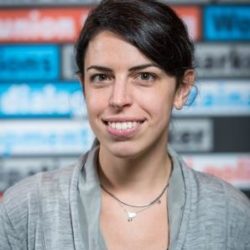
Agnieszka Piasna is Senior Researcher in the Economic, Employment and Social Policies Unit of the European Trade Union Institute (ETUI) in Brussels, and is associated with the Centre for Sociological Research at KU Leuven. Her research interest include job quality, working time, digitalization and the platform economy, as well as gender equality. She has extensively researched and published on various issues surrounding working time reduction, including a book The why and how of working time reduction (ETUI, 2017), or more recently an article “Algorithms of time: How algorithmic management changes temporalities of work and prospects for working time reduction?” (Cambridge Journal of Economics, 2023).
This Mini Conference aims to foster a discussion about the mutual entanglement of digitalization and fragmentation to shed new light on the re-production of inequalities and diversities in contemporary and future societies. While much has been said on how technology transforms work, more debate is needed about how these processes interact with social (in)equalities and diversities. Supplementing this general line of questioning, we particularly welcome contributions that explore the following three areas:
1. Changes in the Occupational Structure
Digitalization, automation and technological change have profound structural impact on the labour markets in terms of shifts in the size of occupational categories and evolution of task contents. In this panel, we welcome papers addressing the following key areas of debate:
• What are the consequences of digitalization and fragmentation on labour market sectors and occupations? How do they interact with labour market segregation based on age, gender and ethnicity?
• How is digitalization transforming the task content of jobs? Which groups of workers are more vulnerable to automation and job replacement?
2. Changes in Careers and Employment Relations
Digital economy and algorithmic management techniques are reshaping work trajectories as well as the employment relationship. Emerging job positions and careers might be increasingly shorter, instable and uncertain. In this panel, we are interested in papers that investigate:
• What is the role played by ethnicity, age and gender in job access, labour market attachment and career development?
• How is digitalization challenging labour market regulations and social protection systems? Which social groups are able to secure better working conditions and which are more vulnerable and precarious?
• What are the consequences in terms of collective representation? How can trade unions and other union-like organizations promote equality and diversity in a digitalized economy?
3. Changes in Work Practices and Everyday Life
Digital economy is changing work practices and blurring the boundaries between paid and unpaid work, professional and private life. On the one hand, the use of new technologies is expected to improve work-life balance and increase worker autonomy. On the other, increased surveillance and weakening of workers’ bargaining power can result in unpredictable and long work hours. This panel welcomes contributions that explore the following lines of enquiry:
• How are digitalization and online platforms changing the way work is organized? How do these changes affect different social groups?
• How do digitalization and fragmentation affect job quality, occupational wellbeing, and work-life balance? How are different categories of workers experiencing the blurring boundaries of professional and private times and spaces?
• In a digitalized and fragmented work, what organisational policies are needed to promote equality and diversity at work?
We invite theoretical, empirical and methodological contributions. An intersectional approach is encouraged, acknowledging that age, gender and ethnicity are not distinct and isolated realms of experience. We invite contributions from the global North and South, and across fields of study, that explore how digitalization and fragmentation of work provoke important questions on the nature of inequalities and diversities in the areas of (i) occupational structure, (ii) careers and employment relations, (iii) work practices and everyday life.
Economic Futures in the Public Sphere
detailed info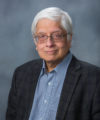 Amitava Krishna Dutt
Amitava Krishna Dutt
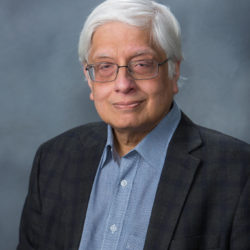
Amitava Krishna Dutt is Professor of Economics and Political Science in the Department of Political Science at the University of Notre Dame, USA, and Distinguished Professor of Economics at FLACSO, Ecuador. He works on the political economy of inequality; global uneven development; consumption, happiness and wellbeing; the political economy of development; heterodox economic theory; the intersection of economics, politics and sociology; and power and uncertainty. His publications include Growth, distribution and uneven development (Cambridge, 1990), Economics and ethics (with Charles Wilber, Palgrave, 2010), Pathways to economic development (Oxford, 2014), and numerous papers in edited volumes and journals, including American Economic Review, Cambridge Journal of Economics, History of Political Economy, Journal of Development Economics, Journal of Development Studies, Journal of Institutional Economics, Journal of Post Keynesian Economics, Oxford Economic Papers, Review of Political Economy, Review of Radical Political Economics, and World Development. He is a coeditor of the international journals, Metroeconomica and Review of Social Economy.
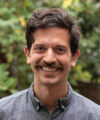 Simone Polillo
Simone Polillo
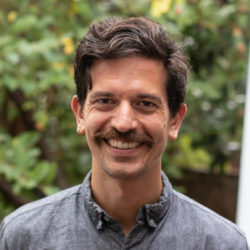
Simone Polillo is Associate Professor of Sociology at the University of Virginia. He works at the intersection of cultural, political, and economic sociology, with a focus on money, finance, globalization, and the sociology of expertise and ideas. He is the author of Conservatives versus Wildcats: A Sociology of Financial Conflict (Stanford University Press, 2013) and The Ascent of Market Efficiency: Finance that Cannot Be Proven (Cornell University Press, 2020); and coeditor of Beyond Liquidity (with Brad Prasanek, Routledge, 2013). His current research centers on the public face of technocracy, and especially of institutions of monetary governance like central banks.
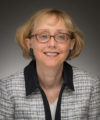 Lyn Spillman
Lyn Spillman
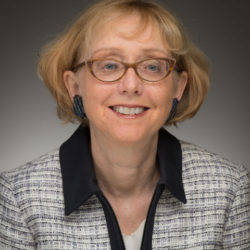
Lyn Spillman is Professor of Sociology at the University of Notre Dame. Her interests include economic, cultural, and political sociology and she is author of Solidarity in Strategy (University of Chicago Press, 2012) and Nation and Commemoration (Cambridge University Press, 1997), and editor of Cultural Sociology (Blackwell, 2002) as well as numerous articles and chapters on economic culture, collective memory, and qualitative methods, including most recently “Professionalism as a Cultural Form,” Journal of Professions and Organizations (2018) (with Sorcha Brophy). She is Co-Editor of Review of Social Economy and Editor of Oxford Bibliographies in Sociology.Her current research examines economic culture in the public sphere.
Following up on recent sociological attention to how futures are imagined and how views of the future influence economic and political action, this mini-conference aims to create an interdisciplinary dialog on time horizons presumed or articulated by theorists, professionals, activists, journalists, politicians and others in their public claims-making about economic issues. Questions to be examined may include (but are not limited to):
*How are assumptions about the future embedded in public economic debates?
*Do assumptions about time horizons of knowledge influence public debate?
*How do historical narratives influence views of the future in economic action?
*How do policy narratives vary according to the time horizon of outcomes?
*How are ethical principles embedded in assumptions about time horizons?
*What debates are generated by differing time horizons, and views of the future?
Empirical exploration of these issues regarding such topics as economic governance, inequality, development, discrimination, and socio-economic insecurity is encouraged, We also encourage submissions from all SASE disciplines. Submissions for panels will be open to all scholars on the basis of an extended abstract. Selected participants must submit a completed paper to discussant and organizers by June 1, 2019. If a paper proposal cannot be accommodated within the mini-conference, it will be forwarded to the most appropriate research network as a regular submission.
Economic Volatility of Our Age, in Theory and Evidence
detailed info Nicolas Duvoux
Nicolas Duvoux

Professor of sociology at Paris VIII University, researcher at CRESPPA-LabToP, Nicolas Duvoux is a specialist in issues of social solidarity, poverty and philanthropy. He is the author of several books including Social inequalities, Paris, PUF, “Que-sais-je? “, 2017; The forgotten ones of the American dream. Philanthropy, State and Urban Poverty in the United States, Paris, PUF, 2015 or The New Age of Solidarity. Poverty, precariousness and public policies, Paris, The Republic of Ideas / Le Seuil, 2012 as well as numerous articles and interventions in the press. He has been Visiting Scholar at Harvard University (2012-2013) and guest lecturer in many countries (Russia, Lithuania, Canada, USA, Switzerland, Belgium, etc.) and academic institutions. In addition to his teaching and research activities, he is a collection director at Presses Universitaires de France and editor-in-chief of Vie des idées.fr. Finally, he participates regularly in public policy evaluation activities. After having been a member of the Evaluation Committee of Active Solidarity Income (2009-2011), he became a member of the University College of the National Observatory of Poverty and Social Exclusion (since 2014) and is, for this reason, president of the monitoring and evaluation committee of the Support Fund for Integration Policies with the Ministry of Solidarity (2018-2021).
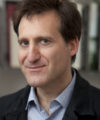 Jonathan Morduch
Jonathan Morduch
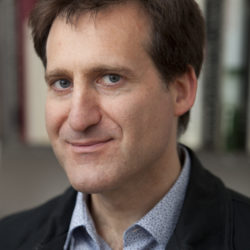
Jonathan Morduch is Professor of Public Policy and Economics at the Wagner Graduate School of Public Service at New York University.
Morduch’s research focuses on poverty and finance. He is the author with Rachel Schneider of The Financial Diaries: How American Families Cope in a World of Uncertainty (Princeton 2017). He is also co-author of Portfolios of the Poor: How the World’s Poor Live on $2 a Day (Princeton 2009); The Economics of Microfinance (MIT Press 2010); and Economics (McGraw-Hill 2017, 2nd ed.), an introductory text. He is a coeditor of Banking the World: Empirical Foundations of Financial Inclusion (MIT Press).
Morduch has taught on the Economics faculty at Harvard, and has held visiting positions at Stanford, Princeton, Hitotsubashi University and the University of Tokyo. Morduch received a BA from Brown and a Ph.D. in Economics from Harvard. He was awarded an honorary doctorate from the Free University of Brussels (ULB) for his work on microfinance. He is a founder and Executive Director of the NYU Financial Access Initiative.
The economic volatility of our age—and, with it, heightened uncertainty and anxiety—is partially rooted in fundamental changes in the workplace. Workers today often manage unsteady economic lives, forced to cope with risks that businesses have shifted onto their shoulders, increasingly through the use of algorithms optimized for short-term business profit. For workers paid by the hour, paychecks vary with the number of hours allotted in a week. For workers who rely on tips and commissions, income depends on the level of business activity and the generosity of customers. For workers who supplement “normal” jobs with time in the gig economy, those gigs come and go. Having a steady job is no guarantee of a steady income. At the same time, welfare benefits have been increasingly tied to workforce attachment in most western countries leaving those at the edge of the labor market insecure. With these transformations, poor, near-poor, and working-class households can all be considered as part of a shared condition. Reckoning with this condition requires new analytical and theoretical tools.
The mini-conference will explore these ideas through three panels.
- Empirical realities: Economic debates on inequality have focused on the top of the socio-economic ladder and on the dispersion of income and wealth (Piketty, 2013). But insights are emerging from studies using a variety of methods—ethnography, financial diaries, qualitative surveys, and Big Data—which capture views of households with high frequency through the year, replacing static or widely-spaced views (Morduch and Schneider, 2017). The high frequency windows allow risks to be traced by researchers in fine-grain detail and implications to tracked as they play out. The panel will put empirical perspectives and methodologies into conversation, taking what happens in the bottom half of the distribution seriously in the study of inequality dynamics (OECD, 2015). It will question the prevailing poverty measures that do not fully capture the extent to which workers, even in full-time jobs, are at risk (Duvoux and Papuchon, 2018).
- Extending theoretical approaches to socio-economic stratification: Concern goes beyond what is generally understood as precarity, ideas usually attached to marginalized groups and those on the edges of the economy. While recognizing the way that framing inequality in terms of insecurity has allowed a more dynamic view on these issues (Western et al., 2012), concern goes beyond the risks of destabilization due to lost jobs, ill health, and the like; instead, understandings must build from the ways that instability and variability have become an ongoing characteristic of economic life. Not only the poor but also large segments of uneducated and less educated are concerned with these detrimental conditions. It has recently been argued that polarization (Kalleberg, 2011) can capture the global dynamics in the labor market. Which theoretical categories and methodologies can be used to investigate and extend notions of economic unsteadiness, insecurity (Hacker, 2006), and precarity?
- Roles of governments, markets, and non-state actors: Populations are looking for greater stability, yet this stability is elusive in the current regime of accumulation, production and redistribution. How and why are conditions perpetuated? What are the prospects for change? Can and if so how welfare arrangements can constitute buffers to this widespread economic insecurity?
Click here for detailed information on each session in the Mini-Conference.
Evaluating Futures, Evaluating Future-makers
detailed info Luciana D’Adderio
Luciana D’Adderio

Luciana D’Adderio is Reader in Innovation at Strathclyde Business School at the University of Strathclyde, UK and Innovation Fellow with the Advanced Institute of Management Research. Her research focuses on organizational routines and innovation. Her scholarly publications include research articles in leading Organisational, Innovation and Information Systems journals (including Organization Science, Organization Studies, Information and Organizations, Accounting Organization and Society) as well as a monograph with Elgar (2004) titled ‘Inside the Virtual Product’.
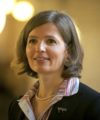 Katy Mason
Katy Mason
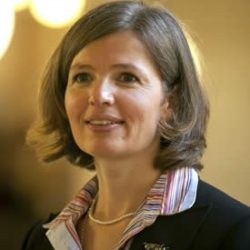
Katy Mason is Professor of Markets, Marketing and Management at the Lancaster University Management School, at the University of Lancaster, UK. Katy’s research focuses on understanding performativity and market-making practices developed through the representation and circulation of epistemic devices. Her research shows how business models are assembled disassembled and reassembled in an innovative process of management learning, enrolling and mobilising collective market-making action. Her work has been published in leading management and marketing journals including Journal of Management Studies, Long Range Planning, Marketing Theory, Journal of Marketing Management, and Industrial Marketing Management.
 Neil Pollock
Neil Pollock
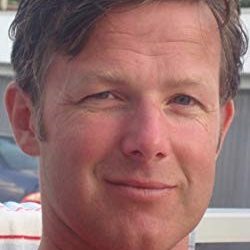
Neil Pollock is Professor of Innovation and Social Informatics and Director of the Doctoral Programme at University of Edinburgh Business School, UK. Neil is primarily known for his interdisciplinary research on IT that sits at the intersection between science and technology studies, information systems, innovation studies and economic sociology. Neil has published in the highest rated academic journals which includes MIS Quarterly, Information Systems Research, Accounting, Organizations & Society, Organization Studies, Social Studies of Science and Science, Technology & Human Values. He is a senior editor at the journal Information and Organization and on the editorial board of Accounting, Organizations and Society. His books include Putting the University Online (Open University Press), Software and Organisation (Routledge), and most recently How Industry Analysts Shape the Digital Future (Oxford).
Understanding the future is of utmost concern. In recent years we have seen the proliferation of new kinds of experts with the capacity if not to predict the future then at least to help others operate in and manage the conditions of high uncertainty that surround the world to come. Fine (2007) suggests most societies will establish ‘ritual specialists’ whose responsibility it is to ‘explain what the morrow will bring’. What are we to make of the peculiar form of knowledge? What about the specialists who produce it? Virtually non-existent a few decades earlier, there are now hundreds of occupations and firms oriented towards the management of the future, with the larger of these organisations producing predictions and forecasts on an almost daily basis. Is this dramatic expansion, which has seen the assembling of an entire ‘future industry’, evidence of the growth of some unique form of expertise able to predict the future?
Who are the new actors evaluating the future? We are interested in exploring the growing plurality of future-makers including their different practices and techniques. New kinds of activities (road mapping, envisioning, futuring, etc.) and actors (industry watch bodies, consultants, academics, industry analysts, futurists) are emerging. These include the economic forecasters that produce macroeconomic models predicting the future state of production and consumption; financial analysts selling investment information to speculators in trading markets; industry analysts attempting to calculate the future of the digital world; technology entrepreneurs setting out ‘visions’; innovators planning product roadmaps; strategists getting involved in scenario planning; and so on.
How are the future-makers themselves evaluated? It is widely understood much future-oriented knowledge will fail to live up to expectations. However, who checks? Moreover, how is this knowledge evaluated? Are actors held to future account for the claims they make? It is recognised, as Fine (2007) has identified, how some forecasters produce claims about future events that are checked as a matter of occupational routine. However, in certain areas, the accuracy of a prediction is thought unimportant. In trading markets, argues Knorr Cetina (2010), actors have little or no interest or incentive raking over old claims; they are just looking towards the next piece of information. It is also unlikely that all future-oriented knowledge is accountable in the same way. Longer-term predictions, for instance, may project too far into the future and be couched in too many techno-industry uncertainties for any group to be held responsible for their non-materialization. Conversely, there may be other shorter-term predictions that are subject to more stringent scrutiny (and possibly sanction).
We invite papers discussing the following situations of evaluating futures/evaluating future makers:
-Who are the new professional and occupational groups that are emerging? How do actors go about creating future-related knowledge?
-Who (if anyone) checks that planned futures realise their aims? What techniques do they use to value the work of future-makers? How do they hold them accountable? What penalties are there for future-makers found to be wrong?
Fathomless Ecologies: The Utopia of Green Finance, the Dystopia of a Financialized Planet, and the Re-imagination of the Socio-Economic Sphere
detailed info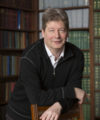 Ian Thomson
Ian Thomson
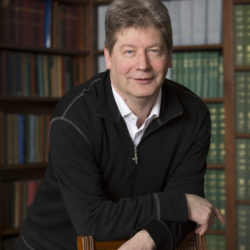
Professor Ian Thomson is the Director of the Lloyds Banking Group Centre for Responsible Business at Birmingham Business School.
Prior, Ian has been researching responsible business, sustainability, and accountability since 1990. This research has included cleaner technology, industrial ecologies, stakeholder engagement, risk governance in water and salmon farming, sustainable development indicators, government policy making, climate change, accounting and activism, human rights abuse and international development. His current projects include responsible and ethical accountability and data use, citizen accounting, carbon accountability social media, football club financing and responsible business benchmarking and transformation.
He has advised various Scottish Parliament’s committees, worked with Sustainable Development Commission (Scotland), The Princes Charity, Business in the Community and UN World Food Programme. He is convener of the Centre for Social and Environmental Accounting Research, a network of over 200 international scholars. Prior to joining University of Birmingham he was Professor of Accounting at Heriot-Watt University, Strathclyde Business School.
 Hendrik Vollmer
Hendrik Vollmer
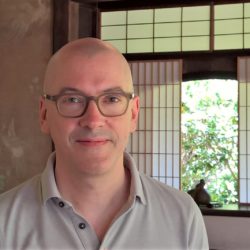
Hendrik Vollmer is Associate Professor at the University of Leicester School of Business and Head of the Accounting Division. He has contributed to social theory in areas such as disaster and disruption, accounting and organisational change, and the microsociology of financial numbers. He has most recently published on how accounting is involved, and tied up, in practices of tacit coordination and is currently working with Yuval Millo on a series of papers in valuation theory. His book “The Sociology of Disruption, Disaster and Social Change” (Cambridge 2013) has looked at the pervasive vulnerability of social order, and he is increasingly intrigued by recent advances in eco-social theorising and how they can help us understand the challenges we are facing.
 Ken Weir
Ken Weir

Dr Kenneth Weir: Centre for Philosophy and Political Economy, University of Leicester.
Ken currently holds the post of lecturer in accounting at the University of Leicester, and is a member of its centre for philosophy and political economy research unit (CPPE). His research studies the links between value and accounting; specifically how such links enter into social spaces. Ken is also active in the burgeoning critical finance studies project, recently completing a study of social finance and investment. His current projects include accounting for biodiversity, wellbeing in the accounting profession, climate change denial in the finance industry, and the sustainability of craft butchery.
The future of our planetary existence is uncertain and increasingly precarious. Ecological awareness has grown since the 1970s and given rise to numerous global and regional initiatives to moderate the trajectory of socio-economic development, under the banner of sustainability typified by the UN Sustainable Development Goals. The utopia of good and green finance – from social investment to “green” financial products or policies of climate regulation that attempt to harness financial markets to reduce carbon emissions – has reimagined financial expertise, positing it as a force for ecological change to stimulate the much-needed turnaround. The finance and accounting professions have been associated with such initiatives, notably the UN Principles of Responsible Investment, UN Global Compact and the Global Reporting Initiative.
Scholars in social and environmental accounting, social studies of finance, economic sociology, and related areas, have contributed intermittently to these initiatives through research and, occasionally, active interventions. Since the 1990s, they have become increasingly skeptical of the merits of these engagements. Environmental reporting has often been subsumed by corporate strategies predicated on the exigencies of impression management in avoiding public scrutiny and more heavy-handed forms of political regulation. Concomitantly, critical scholars have re-affirmed the ecological predicament by sketching disastrous trajectories of socio-economic development, whether in terms of full-cost and extinction accounting or by documenting the ineffectiveness of carbon trading. Extending financial reasoning, financialized forms of sustainable intervention and regulation have been criticised as accelerating the process of planetary collapse. The utopia of green finance is reconsidered against a process of financialization that problematically redefines the full scope of our ecological relationships. The fact that finance is taking charge of sustainable development thus reinforces a dystopian view of continuous ecological decline on a progressively financialized planet.
Alongside this research, others have been striving to reimagine socio-economic development in more fundamental ontological and epistemological terms, tracing the roots of our current predicament to the enlightment, the dawn of modernity, or even back to the Neolithic Revolution as the start of the anthropocene. Bruno Latour and others have attempted to reimagine the basis of our constitution as an ecologically challenged collective, often against the nature/society dichotomy central to modern thought.
Re-imagining the possibility of finance and accounting that is in harmony with nature and society remains an unresolved challenge. Therefore this mini-conference seeks to provoke further debate on the relations between the socio-economic sphere and its planetary ecologies. We welcome contributions that:
• investigate ecological reimaginations of economy and society, whether empirical, theoretical or programmatic.
• present case studies that evaluate attempts to utilise financial practices or reasoning for ecological goals.
• theorise the possibility of an ecological reconstitution of the socio-economic sphere and the place, or lack thereof, for financial practices in any such reconstitution.
Finance after the Financial Crisis
detailed info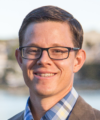 Charlie Eaton
Charlie Eaton
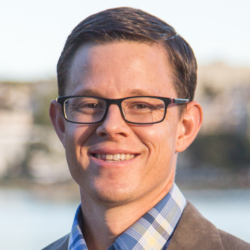
Charlie Eaton is an Assistant Professor of Sociology at UC Merced and an affiliated faculty member of UC Berkeley’s Center for Studies in Higher Education. Eaton’s research investigates the role of organizations in the interplay between economic elites and disadvantaged social groups. Eaton’s primary current project asks how the rising power and wealth of finance has contributed to increasing inequality in America since the 1980s. The project particularly examines how private equity, hedge funds, investment banks, commercial banks and their leaders entered the field of higher education administration and finance during this period.
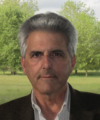 Neil Fligstein
Neil Fligstein
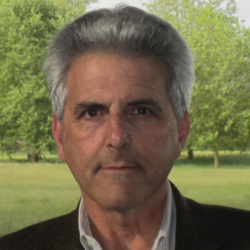
Neil Fligstein is the Class of 1939 Chancellor’s Professor in the Department of Sociology at the University of California. He has made research contributions to the fields of economic sociology, organizational theory, political sociology and social stratification. He is the author of eight books including The Transformation of Corporate Control (Harvard University Press, 1993), The Architecture of Markets(Princeton University Press 2001), Euroclash (Oxford University Press, 2008), A Theory of Fields (with Doug McAdam, Oxford University Press, 2012), and The Banks Did It (Harvard University Press, 2021). He is currently working on a project trying to understand corporate and governmental responses to climate change.
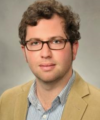 Adam Goldstein
Adam Goldstein
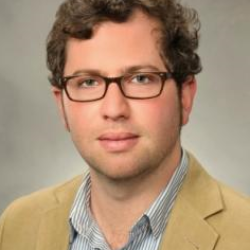
Adam Goldstein teaches sociology and public affairs at Princeton University. He earned his PhD in Sociology from the University of California at Berkeley and was a Robert Wood Johnson Post-Doctoral Scholar at Harvard. His areas of interest include economic sociology, organizations, and social stratification. His current research examines the social consequences of financial capitalism in the contemporary United States. He is interested in how institutional changes associated with ‘financialization’ have reshaped various socio-economic domains, and how organizations, communities and households respond to these changes. His research has been published in journals including the American Sociological Review and the Socio-Economic Review.
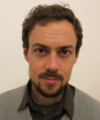 Jacob Habinek
Jacob Habinek
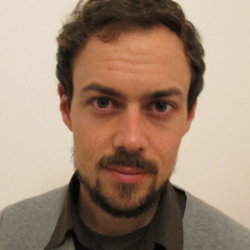
Jacob Habinek is a postdoctoral researcher at the Institute for Analytical Sociology in Norrköping, Sweden, having completed his Ph.D. in sociology at the University of California, Berkeley in 2016. His research applies the tools of social network analysis to study the institutional processes that create, sustain, and transform organizations and markets. His current projects examine the emergence of new academic disciplines and innovation in financial markets. In the past he’s also studied the origins of the U.S. magazine industry, the financialization of U.S. higher education, and the coevolution of social networks and shared meanings in urban communes. Some of his work has appeared in Administrative Science Quarterly, Socio-Economic Review, and Social Networks.
The mini-conference invites submissions around the following themes:
Reassessing the Crisis. Ten years after the financial crisis we are still debating questions of causality, culpability, and uneven recovery. We therefore invite papers that shed light on the structural roots of the financial crisis, as well as papers that explore the failure of experts to predict and forestall the crisis as it happened. The crisis of banking was global, but it was unevenly spread across countries and had differential impacts on national economies. Why were these impacts so different? And how were policy responses more or less successful at coping with them?
Ideational Underpinnings of Financial Capitalism. One strand of economic sociology has emphasized the role of economics in creating financial markets. In the wake of the financial crisis, the economics profession initially appeared to take a hit. We are therefore particularly interested in papers that examine the actions of economic experts during the financial crisis and the legitimacy (or illegitimacy) of their expertise in its aftermath.
Socio-Technical Infrastructures. The technical aspects of financial innovation have long been a topic of study for economic sociologists. How has the use of securitization, algorithms, and other tools of financial innovation changed since the crisis? Have the continued expansion of algorithmic technologies in financial markets once again set the economy on a path that the titans of finance themselves fail to grasp?
Reconstructing the Global Financial Order. Scholars have shown that finance has been a force re-structuring world exchange. Following the crisis, financial markets underwent a substantial reorganization at the national and transnational level. These changes and their impact on national or international economies for better or worse provide another key theme for the mini-conference. We are interested in changes both to the organization of financial markets and to the place of financial motives and logic beyond the traditional domains of finance. Have policymakers tried to construct new rules to reduce risk or have financial products or have innovations which create risk continued apace? Are regulatory interventions different across countries, and if so, why and how?
Social and Political Consequences. The crisis reshaped the distribution of household wealth and income. Papers that explore the links between finance, financialization, and the growing inequality in wealth and income are welcome. Pundits around the world attribute the rise of populist nationalist governments to the severity of the financial crisis. The most common mechanism cited is the way in which the severity of the crisis differentially affected working class households. These households were disgusted by their government’s support of banks and their disregard for people’s very real suffering. Emerging populist nationalist regimes have successful linked that disgust to anti-immigrant sentiment.
Futures and Visions of Global Orders
detailed info Jenny Andersson
Jenny Andersson
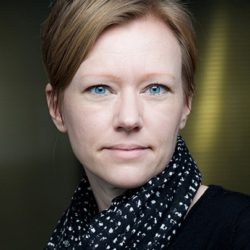
Jenny Andersson is Co-Director of MaxPo, a CNRS Research Professor (section 40, Politique, pouvoir, organisation), and Principal Investigator of the Futurepol Project, which was funded by an ERC Starting Grant of 1,350,000 Euros in 2012. She joined the CNRS and Sciences po in 2009 after several visiting and post-doctoral fellowships at the European University Institute, Florence, and at the Center for European Studies, Harvard University. She holds a PhD in Economic History from Uppsala University (2003). Her researches focus on the history of future research, prediction, futurology and futures studies in the global field, and investigates the circulation and constitution of future expertise in the post war period, and the role of prediction as a source of governmentality. She recently published The Future of the World. Futurology, Futurologists, and thr Struggle for the Post-Cold War Imagination (Oxford University Press, 2018).
 Vincent Cardon
Vincent Cardon
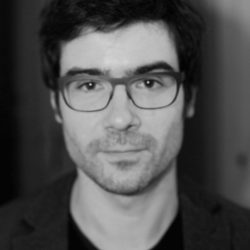
Vincent Cardon is an assistant professor at the University of Picardie Jules Verne, and a member of the Centre Universitaire de Recherches sur l’Action publique et le Politique, Epistémologie et Sciences Sociales and of the Institute for Research and Innovation in Society. He holds a PhD in sociology from the Ecole des Hautes Etudes en Sciences Sociales and has published articles about the analysis of insecure labour markets, the social organisation of production in the movie industries, the effects of the Internet on evaluation (online consumer reviews in the hospitality industry), the risk assessment of unprecedented risks (agro-terrorism) and of pesticides’ health effects. His current research interests span the social construction of markets, valuation processes and quantification. He recently opened a field work on global food security issues, with a focus on the scenario analysis tools designed by agro-economists to model the long term future of agriculture.
 Melissa Fisher
Melissa Fisher
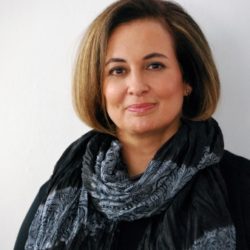
Melissa Fisher is a cultural anthropologist who writes on finance, feminism, and the workplace. Her first book, Frontiers of Capital: Ethnographic Reflections on the New Economy (Duke University Press, 2006), a co-edited volume, brought together ethnographies exploring how cultural practices and social relations were altered by radical economic and technological innovations during the turn of the new millennium. Her second book, Wall Street Women (Duke University Press, 2012), tracks how the first generation of Wall Street women simultaneously built professional careers in finance while constructing market feminisms (1956-2010). She is working on a third book about gender, sexuality, diversity, and inclusion in finance and film. Based on fieldwork in the United States and Europe, it focuses on how social movements (such as Me Too) shape individual careers as well as organizational life and policymaking.
Fisher has given numerous key notes and conference talks nationally and internationally. Her book on Wall Street women received over twenty-five reviews in academic journals. Her research has been profiled by The Wall Street Journal, Business Week, The Guardian, The Times of India, CNBC, NPR and the BBC. She has written for publications such as Bloomberg and Bill Moyer’s Group Think. She has appeared on television and was featured in the Emmy nominated 2014 PBS documentary Makers: Women in Business.She also played an advisory role in the first female financial thriller film: Equity, a Sony Classic Pictures release (2016).
Fisher was most recently the Laurits Andersen Professor with Special Responsibilities in Business and Organizational Anthropology at the University of Copenhagen. She has also been a faculty member in the Department of Social and Cultural Analysis at New York University and the Department of Anthropology at Georgetown University. She is currently a member of the Women Creating Change Leadership Council at Columbia University’s Center for the Study of Social Difference. As a US Delegate to the Women’s 20 in Argentina (2018) and Japan (2019), she advises on issues such as gender and financial inclusion. Fisher earned her Ph.D. and M.A. in Cultural Anthropology at Columbia University and her B.A. in English at Barnard College.
 Olivier Pilmis
Olivier Pilmis

Olivier Pilmis is a Research Fellow in Sociology at the French National Center for Scientific Research (CNRS) and a member of the Centre de Sociologie des Organisations (Sciences Po – CNRS) in Paris. He received his PhD in Sociology from the Ecole des Hautes Etudes en Sciences Sociales (EHESS). His research applies economic sociology, organizational sociology and sociological theory to the study of macroeconomic forecasting. Pilmis’s work focuses on the emergence of beliefs, the production of legitimate discourses about the future, and the social structure of the market for forecasting.
Current Research Project : http://www.sciencespo.fr/liepp/en/content/informer-pour-gouverner-les-dynamiques-institutionnelles-des-mondes-de-la-gouvernance-macroe
This miniconference aims to explore the role played by predictive instruments such as scenarios, forecasts, or Delphi panels in creating visions of socio economic futures across global space. It seeks, in particular, to understand how predictive technologies are not only performative devices (as shown by STS scholars) but also carry important legacies of global expertise and ambitions of control that extend both in time and space. By integrating arguments from history and economic history, the mini conference seeks to explore the links between the future visions carried by such technologies, and specific forms of globalistic expertise such as global consultants, forecasters and scenario makers. The aim of the mini conference is therefore to tie together emerging strands of thinking from financial sociology and anthropology economic history and sociology, around futures as not only visions and images of coming time, but as highly material expectations and even forms of extension of future interest. Our scope is both theoretical and empirical in aim. Drawing on a range of methods including ethnography and intellectual history, we seek to contextualize and problematize concepts such as expectations, risk and uncertainty, and we seek to show the complex histories and socio economic contexts of predictive tools and their geopolitical agendas. By so doing we seek to reinvest the future with the problem of power and understand future expectations and images as results of power struggles between economic actors, markets, states, culture and interests.
Contributions addressing the following thematic strands are particularly welcome (although contributions exploring other related questions will be considered):
The history/histories of scenarios. Anticipations of the future involve a set of tools and calculative technologies, most of them relying on expertise and making use of specific data and inputs, but most of which also have a very specific history. This history can be traced to new forms of future speculation based on computer powered tools and algorithmic reasoning, but also to efforts to reinvent and extend the scope of planning, and not least to new rationalities of governmentality and management profoundly inspired by global corporations facing uncertainties related to an unpredictable process of globalization from the 1970s on. We encourage papers that explore this situated socio economic and cultural contexts of predictive technologies over time and their link to historic impressions of global space. We are also interested in papers that consider the relationship between the global and local contexts.
Forecasting expertise: Which are the groups and actors that produce and use predictive technologies and is there a particular kind of forecasting or future expert? On what forms of epistemological underpinning is such forecasting expertise created and maintained? How are forms of legitimacy constructed around forms of knowledge that are necessarily of speculative kind, but that can nevertheless be underpinned with complex forms of data and objective representation? The development of foreknowledge (or -guessing) for regulation emphasizes connections between socio-economics and science and technology studies, and leads to an interrogation on the social and cultural under which expertise is regarded as reliable.
Futures of capitalism: Since the 1970s, futurists, futurologists and transhumanists ranging from the expert to the speculative public intellectual, have been profoundly involved in the prediction and envisioning of futures of capitalist development, new economies, new cultural scenarios, new patterns of consumption and production, emergent technologies and new economic and political world orders. Such future visions appear to emanate from specific sites and places, ranging from the World Economic Forum or Wall Street to Silicon Valley. How are claims as to the coming, often projected as dramatically different, capitalist future constructed and projected? How do they reflect socio economic orders and which space do they give to utopian notions of different emergent worlds, be it with regards to technology, to the global division of labour, environment, gender, race and / or power?
Global Value Chains Analysis: Past, Present, and the Future
detailed info Matthew Alford
Matthew Alford
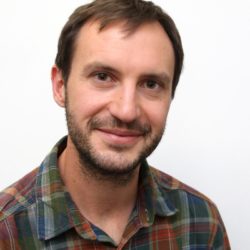
O: Global Value Chains
Matthew Alford is a Professor of International Business and Development, Alliance Manchester Business School, University of Manchester
My research interrogates questions of development in the context of globalization, transnational trading networks and labour. More specifically, I focus on the role of nation states in governing labour in global value chains, and how public regulations interact with lead-firm driven private codes of conduct and civil society initiatives. My recent work investigates these issues in the context of regional agricultural and garment value chains spanning Sub-Saharan Africa. I earned my PhD in International Development from the Global Development Institute (GDI) and am currently employed as a Professor of International Business and Development at the Alliance Manchester Business School (AMBS), University of Manchester.
 Valentina De Marchi
Valentina De Marchi
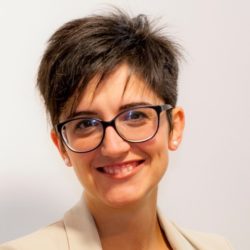
Network O
Valentina De Marchi is Associate Professor in Business Strategy at the Department of Economics and Management, University of Padova. She is interested in environmental innovations and environmental upgrading, and on the evolution of Italian industrial districts and small and medium sized firms within global value chains. Her work has been published in journals such as Research Policy, European Journal of Development Research, Business Strategy & the Environment, International Business Review, Journal of Cleaner Production, European Planning Studies. She has recently co-edited the Routledge book Local Clusters in Global Value Chains: Linking Actors and Territories Through Manufacturing and Innovation (2018) together with Eleonora Di Maria and Gary Gereffi. She has been visiting at the Center on Globalization, Governance & Competitiveness at Duke University (USA); the Department of Innovation and Organizational Economics at Copenhagen Business School (Denmark); the Department of Business Administration and Marketing, Universitat Jaume I (Spain). She has been appointed Governing Responsible Business (GRB) Fellow at Copenhagen Business School (CBS) for 2018-2019. She is president of the GRONEN community (2020-2011).
 Gale Raj-Reichert
Gale Raj-Reichert
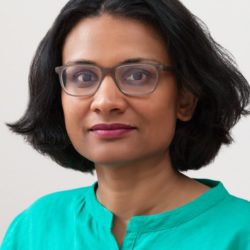
Gale Raj-Reichert is a Lecturer in Economic Geography in the School of Geography at Queen Mary University of London.
Her research interests are on labour governance in the electronics industry global value chain/global production networks. Gale’s research has focused on the US, EU, Malaysia, Singapore, China, Vietnam, Indonesia, and Hong Kong. Her current research interests are on how socially responsible public procurement and labour standards in trade agreements affects labour conditions in global value chain/global production networks. She is currently a recipient of a British Academy Rising Star Engagement Award on a project on ‘Improving Labour Conditions in Global Production Networks through Socially Responsible Public Procurement’. From 2019 to 2020 she will be a Principal Investigator at the Berlin Social Science Center for a project funded by German Research Fund on ‘Labour governance in global production networks: Assessing labour standards in a new generation of public procurement legislation and trade agreements linked to market access in the European Union’.
Global value chain (GVC) analysis has reached a milestone with over twenty years of research. An analytical framework for understanding the global fragmentation of manufacturing and services as key processes of globalization, GVC research has helped us conceptualize and anticipate a variety of im-pacts, opportunities and challenges, posed by global industries on firms, workers, local communities, natural environments and national developmental paths. A series of forthcoming books on GVCs take stock of the breadth of research conducted thus far and consolidates key contributions, laying a basis for future research into the impact of these global processes on our economies, politics, and societies across scales and geographical locations (De Marchi, Di Maria, and Gereffi 2018; Gereffi, Ponte, and Raj-Reichert 2019; Gereffi 2019; Ponte 2019). A key characteristic of analytical progression in the GVC domain is its inter-disciplinary openness to research for example in Economic Geography and International Business, amongst others.
We are interested in papers on the following key themes which are innovative in their scope, methods, and ideas. We are particularly interested in inter-disciplinary contributions. Papers can be cross-cutting in its thematic focus. Submissions related to the themes are also welcomed.
1) GVCs and states
• How do states facilitate industrial policy and innovation in GVCs? And in the context of Indus-try 4.0?
• How does recent national socio-political shockwaves and increased protectionism challenge the state’s regulatory and facilitative roles in GVCs?
• What are the particular governance dynamics of State-Owned Enterprise-driven value chains? For example over social and environmental conditions and the enforcement of standards?
• Considering the role of the state as a buyer in GVCs what are the environmental, economic, social, and/or political implications?
2) GVCs and environmental sustainability
• What impacts does environmental upgrading have on governance structure of GVC industries?
• Which GVC characteristics promote or inhibit corporate wrongdoing?
• What practices support the transmission of environmental practices along GVCs?
• Does improved environmental practices in GVCs achieve better economic and social standards?
3) GVCs and gender
• How can governance modes promote gender-equitable rights and worker well-being in GVCs?
• How do civil society campaigns respond to gender inequalities and the devaluation of women’s paid work in GVCs?
• How does Industry 4.0, automation, and e-retailing impact gendered work in GVCs?
4) GVCs and labour
• How does technology, digitalization, and Industry 4.0 affect work, competences, and working conditions in GVCs?
• Considering research on labour movements, worker agency, and power how do evolving strategies of worker contestations impact working conditions in GVCs?
5) GVCs and digitalization
• How are technological developments changing GVCs sectorally, at the firm level, at the scale of the workplace , and globally/regionally/(sub)nationally?
• How do different types of firms (lead firms or suppliers) gain advantage and influence power rela-tionships through technological advancements within GVCs?
• What opportunities does digitalization and Industry 4.0 offer for improved environmental practices and labour governance in GVCs?
Makers' Worlds: Beyond All the Borders
detailed info Anne-Sophie Béliard
Anne-Sophie Béliard
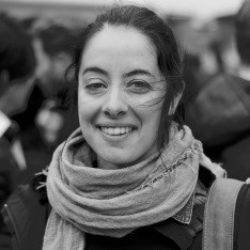
Anne-Sophie Béliard is associate professor in sociology at the University Grenoble-Alpes (France) and researcher at Pacte (Public policies, political Action, Territories). Her research fields are media sociology and web studies. Her current research topics cover digital practices, careers of amateurs and professionalization processes. She recently published “Making Money from TV Series: From Viewer to Webmaster with Financial Reward” in S. Naulin & A. Jourdain (eds.) The Social Meaning of Extra Money. Capitalism and the Commodification of Domestic and Leisure Activities (2019).
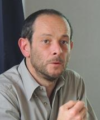 Pierre LeQueau
Pierre LeQueau
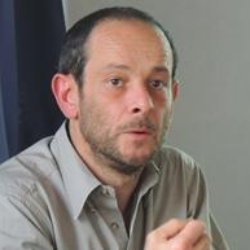
Pierre LeQueau is anthropologist, associate professor at the department of sociology (accredited to supervise research) of University Grenoble-Alpes (France). He is research fellow at PACTE and his research interests are technical, cultural and social mediations and new forms of solidarity. He recently organized the international forum for well-being in Grenoble (June 2018).
 Olivier Zerbib
Olivier Zerbib
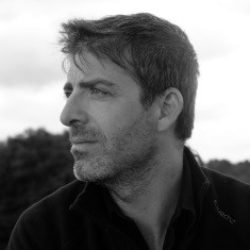
Olivier Zerbib is associate professor at University Grenoble Alpes (Graduate school of management and department of sociology). His research interests are: the cultural and communicational forms of reflexivity, the effects of cultural eclecticism on digital practices, the hybridization of cultural forms and observable remediations, particularly with regard to public reading, encounter sites and video gaming. By analyzing various digital systems he has sought to better understand the processes of innovation, reception and sharing of digital objects and works. His current research work focuses on third places and libraries (updating and reflecting on works done in the 2000s on the introduction of digital media to the supply of documents and associated practice). Past or ongoing publications reflect these concerns, as well as those relating to reflexivity and innovation in the field of video games (first-person shooter or musical video games).
The mini-conference focuses on the new forms that shape the Do-It-Yourself movement nowadays. Makerspaces, hackerspaces, fabLabs, techshops are some of them which, from the markets or their margins, redesign the borders of socioeconomic reality and experiment new ways of making social worlds.
The following issues could be discussed:
Emergence conditions
Makerspaces appeared spontaneously and maintained themselves for a long time. What then makes them arise? Do they continue previous forms of (sociocultural or socioeconomic) organizations? And/or do they express a reaction to new institutional or economic constraints?
This suggests that they can play a significant role in the resilience of inhabitants after a crisis. But that would not explain why they maintain and sometimes even develop themselves then.
Despite contextual elements, past and present, it is therefore necessary to grasp the proper logic of development of these social forms and the way they produce their justifications: from new global hacker culture to local community education or working based learning. Their references also could be very different depending on whatever they produce, recycle or fix.
Public policies now often encourage the creation and development of this kind of third places. In this case, we could then look at what is expected by local authorities.
Ecosystem
Makerspaces develop themselves by forming a dense but diversified network (cluster? scene?) considering the field of activity, location, members, legal forms and actual modes of governance.
We can then try to understand what connects these different experiences, through space and time. People who created and/or animate them certainly play a major role in organizing these networks. We could be interested in examining their trajectory, training course and experiences… Including in other networks, elsewhere. A similar approach of those who participate to their workshops is possible as well.
Other resources, material and non-material, also circulate between different places. How do these non-monetary markets actually work in terms of exchanges, valuation, etc.? How are they connected to each other, including internationally?
Finally, what do the outcome of the whole system consist in and how evaluate it, individually and collectively. In this regard, we could pay particular attention not only to the transfer of skills to the inhabitants, but their global empowerment.
Border troubles
The logic of bricolage involves the articulation of heterogeneous materials and know-hows as well as various forms of collaboration and co-working we could describe.
Consequently, the DIY movement blurs several traditional boundaries of economic systems. As makers produce items and share competences on their free time without economic benefits, their activities reconfigure links between work and non-work, commercial and non-commercial activities.
Boundaries between institutional and non-institutional frames could also be addressed and different social and political claims as well. For example, some makerspaces add gender concerns to their libertarian identity. Do these processes prevent some makerspaces from becoming more inclusive or do they allow them to evolve towards new definitions of community and democracy?
Papers with varied disciplinary backgrounds discussing these topics or other topics are welcome.
Out of Sync: Disordered Temporalities and Temporal Conflicts in Contemporary Capitalism
detailed info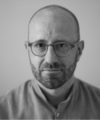 Mateusz Halawa
Mateusz Halawa
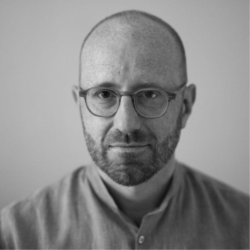
Mateusz Halawa is an ethnographic researcher at the Max Planck Partner Group for the Sociology of Economic Life at the Institute of Philosophy and Sociology of the Polish Academy of Sciences. He is a doctoral candidate in the Department of Anthropology at the New School for Social Research. His recent work was published in Cultural Studies, the Journal of Cultural Economy, and Food, Culture & Society.
 Marcin Serafin
Marcin Serafin
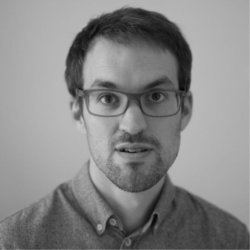
Marcin Serafin is an economic sociologist and the head of the Max Planck Partner Group for the Sociology of Economic Life at the Institute of Philosophy and Sociology of the Polish Academy of Sciences. His research interests include sociological theory, temporal order of markets, digital platforms, and human ecology. His recent articles include “Cabdrivers and Their Fares: Temporal Structures of a Linking Ecology” in Sociological Theory and “Contesting the Digital Economy: Struggles Over Uber in Poland.”
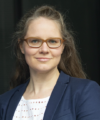 Lisa Suckert
Lisa Suckert
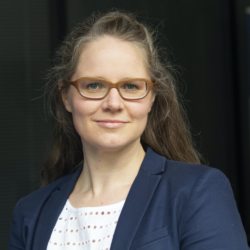
Lisa Suckert is a Senior Researcher at the Max Planck Institute for the Study of Societies in Cologne, Germany. She currently investigates the dynamics of future expectations and temporal orders in moments of economic and political crisis. Her work is theoretically inspired by field theory and économie des conventions and focuses on economic and political sociology, sociology of time and research on capitalism. Recent articles include: “The Future as a Social Fact. The Analysis of Perceptions of the Future in Sociology” (with Jens Beckert: Poetics, forthcoming) “Temporality in Discourse: Methodological Challenges and a Suggestion for a Quantified Qualitative Approach” (with Julian Hamann, Forum: Qualitative Social Research, 2/2018) and “Unravelling Ambivalence: A Field-Theoretical Approach to Moralised Markets” (Current Sociology, 5/2018).
The rise of capitalist modes of production revolutionized the temporal order of traditional societies. The future has emerged as the major temporal reference for social and economic life, becoming ever more open, contingent, and uncertain. Time itself has become an object of commodification, power struggles and new differentiations. However, the emergence of this new temporal order did not mean the disappearance of other cyclical forms of time. The proposed mini-conference takes up these classic concerns of sociology and transposes them to the current phase of capitalism. It is interested in the distorting effects of new capitalist developments for the temporal order of 21st century societies. How do processes of globalization, digitalization, or financialization affect the ways time and the future are conceived? How are these transformations related to the multiple rhythms structuring modern societies? What are the structural temporal conflicts between the economy and other social spheres? And what technologies do actors use to manage these conflicts?
Contributions addressing the following thematic strands (or related perspectives) are particularly welcome:
a) Disrupted temporalities
We invite contributions that explore the multiple ways that new capitalist developments affect the perceptions of time. The assessment of these transformations is of particular importance, as capitalism risks destroying its own temporal foundations. Innovation, entrepreneurship and investment, the backbones of traditional capitalism, all require the confidence in an open future full of opportunities and the capability to envision and project long term perspectives.
How do algorithms and new data-based modes of prediction render futures less open? Is financialization increasing the speed and accelerating social live? Are actors in a globalized, flexibilzed economy still confident they stand to take control of their futures?
b) Desynchronized temporalities
We invite contributions that analyze the frictions between the temporalities of contemporary capitalism and those of other social spheres, like e.g. the state, home, sleep or religion. How do the changing dynamics of capitalism relate to the multiple rhythms structuring modern societies? What are the assonances and dissonances between biographical time of the life course and the cycles of finance? What is the conflict between the short-term profit of financialized capitalism and its long-term externalities, including the deep futures of Anthropocene? How are they adjusted and how do they diverge? How do current developments increase or relax existing desynchronization?
c) Managed temporalities
We invite contributions that look at how temporal conflicts and disorders created by contemporary capitalism are managed and mitigated. How do people cope with divergent rhythms of social life as they try to manage their work-life balance? What role do professionals play in managing temporal conflicts on the individual level (e.g. therapists, sleep coaches, work-life-balance consultants)? By what devices are temporal conflicts reduced at societal level (e.g. logistics, jurisdiction, trade unions, state governance)? Finally, what is the role of different digital technologies (calendars, collaboration software, trading terminals, smartphone applications etc.) in this process of syncing and desyncing of social life?
Possible Worlds: Practice, Ethics, Hope, and Distress
detailed info Gary Herrigel
Gary Herrigel
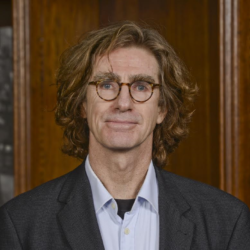
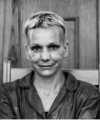 Adriana Mica
Adriana Mica
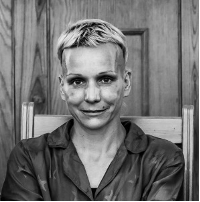
Adriana Mica is Assistant Professor and head of the Research Unit on Action and Consequences at the Institute of Social Prevention and Resocialisation, University of Warsaw. Her research interests include sociology of possibility and ignorance, critical failure studies, theory of randomness, unintended consequences, and crisis management. She is the co-author of Ignorance and Change: Anticipatory Knowledge and the European Union Crisis (Routledge, 2021) and author of Sociology as Analysis of the Unintended: From the Problem of Ignorance to the Discovery of the Possible (Routledge, 2018). She is currently working on a co-authored book – The Imaginary of Failure: Coming to Terms with Contingency and Inequality in Policymaking (with Mikołaj Pawlak and Paweł Kubicki). As well as co-editing Routledge International Handbook of Failure: Critical Perspectives from Sociology and other Social Sciences (with Anna Horolets, Mikołaj Pawlak, and Paweł Kubicki, Routledge, forthcoming).
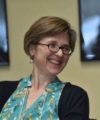 Ann Mische
Ann Mische
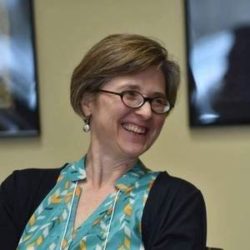
Social action, entrepreneurship and decision-making are increasingly depicted as taking place in a context of possibility, alternatives, and opportunities waiting to be revealed. This discourse is associated with hope, creativity and adventure, and is backed up by contemporary advances in technology, which render the contemplation of possible worlds more and more widespread.
The spectrum of what is possible helps to advance alternative economic activities (sharing or cooperative economies), nonconventional entrepreneurship, original forms of adaptation, social and technological innovations, social movements, and even new types of governance infused with hope. Hence, engaging the possible can be a tool to reduce or, at least, challenge social inequalities. At the same time, however, visions of the possible can generate disappointment regarding less advantageous or unexpected developments. These might include, for instance, claims regarding the failure to anticipate episodes of crisis (financial, migratory etc.) or inaction in responding to crises (ecological etc.). These developments infuse the exploration and transformation of the possible with urgency, pressing policymakers, scientists and citizens to imagine alternative scenarios and push the boundaries of what people consider to be plausible and desirable futures.
The invocation of what is possible can also lead to the reification of future scenarios, and to subsequent fatigue. On the one hand, the “possible” always remains in an indefinite future. On the other hand, it is the subject of political struggles, and thus the reification or transformation of possible futures is always consequential to the present. This reification occurs via the voicing of certitude that certain risks or possibilities will materialize, without preliminary discussion of the extent to which these possible worlds are in fact probable. Examples include the reification of “dark” futures in relation to economic downturns, limits to growth and resources, health and environmental risks, or the “invasion of migrants” in Europe.
The mini-conference invites papers exploring the dynamics of the possible in the contemporary world. We seek to explore the forms of social and political agency triggered by different articulations of the possible, and the range of reactions to these. The intuition guiding this discussion is that there is more than one logic of what is possible. Possible worlds reveal themselves in relation to social structure, economic situation, habitus, power, and politics. This mini-conference aims to explore in what directions the possible is leading us in the contemporary world. We will discuss how it enables or blocks individual and collective action; how it contributes to political struggles; how it provides templates for social policy; and how it re-arranges temporalities across social fields. We will also consider the conditions that lead to the exhaustion of possible futures. Finally, we will discuss the most suitable sociological theories and research methods that scholars can use to investigate possible worlds.
Socio-Economic and Political Transformations in Ibero-America: Where Are We Heading?
detailed info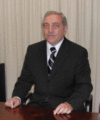 Pedro Cezar Dutra Fonseca
Pedro Cezar Dutra Fonseca
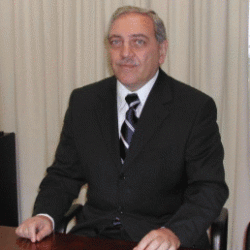
Pedro Cezar Dutra Fonseca has a Bachelor and Master in Economics from the Federal University of Rio Grande do Sul – UFRGS. PhD in Economics from the University of São Paulo – USP. Researcher at CNPq since 1987. Professor of the Department of Economic and International Relations at UFRGS, where he was Coordinator of the Graduate Program in Economics, Head of the Department, Director of the Faculty of Economic Sciences, President of the Research Chamber, Pro-Rector of Research and Vice-Rector. He was Coordinator of the Economics Area of CAPES, President of the Foundation for Research Support of Rio Grande do Sul (1997-2000) and President of the Brazilian Society of Political Economy (2002-2004). He works in the areas of Economic Development, Economic Formation of Brazil in the twentieth century and History of Economic Thought. He was awarded Honorary Mention at the Haralambos Simeonidis / ANPEC Award (1987) and the second place in the “V BNDES Economy Award” (1981). Received from FAPERGS the “Researcher Award Gaúcho 2011” in the area of Economics and Administration. Coordinated the Brazilian Network of Education for Economic Development. He is a member of the Board of Directors of the Celso Furtado International Center.
 Ricardo Dathein
Ricardo Dathein
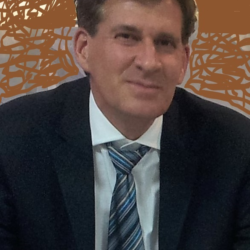
Undergraduate in Economics (1985) and Civil Engineering (1983) at Federal University of Rio Grande do Sul (UFRGS), specialization in Labor and Unionism Economcs (1994) at State University of Campinas (Unicamp), master in Economics (1992) at UFRGS and PhD in Economics (2000) at Unicamp. Experience in Economics, with emphasis in Economic Theory, acting mainly in the following subjects: development economics, economic policies and Brazilian economy. Was chief of the Department of Economics, Vice Director of the Faculty of Economic Sciences, and Editor of the journal Analise Economica. Currently is Full Professor of the Federal University of Rio Grande do Sul and Coordinator of the Graduate Program in Economics (PPGE)/UFRGS.
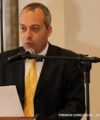 André Moreira Cunha
André Moreira Cunha
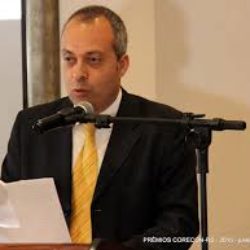
André Moreira Cunha is Associate Professor in the Department of Economics and International Relations at the Federal University of Rio Grande do Sul and CNPq Researcher (since 2005). He received a Ph.D. in Economics from the State University of Campinas (2002) and held a post-doctoral fellowship in Economics at the University of Cambridge (2012). He was visiting professor at the University of Leiden (Holland), Professor at Unisinos (1995-2003) and Advisor to the BRDE Board of Directors (1999-2003). He is the author of numerous articles published in national and international journals, such as: Revista de Economia Política, Revista da ANPEC, Economia e Sociedade, Ensaios FEE, Nova Economia, Revista Análise Econômica, Cepal Review, Latin America Research Review, Journal of Post Keynesian Economics, America Latina Hoy, and others; of book chapters (edited in Brazil and abroad) and books (both authored and co-authored), related to macroeconomic aspects of international trade and finance; globalization; economic integration; and economic development.
 Julimar da Silva Bichara
Julimar da Silva Bichara
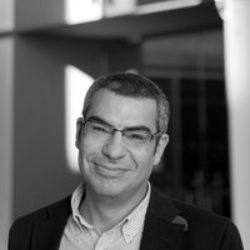
M: the Spanish Language Network
Julimar da Silva Bichara is Associate Professor at Departamento de Estructura Económica y Economía del Desarrollo at Universidad Autónoma de Madrid (Spain). He has been a member of SASE since 2006, participating as a Spanish Language Network co-organizer since 2008, member of the Organize Committee of the SASE Ibero-American regional conferences and Member of the Executive Council since 2018. As a member of SASE’s Ibero-American chapter, Julimar has participated of the four editions of SASE Ibero-American Meeting (2013 UNAM – Mexico; 2015 UFRGS – Porto Alegre, Brazil; 2017 – UTB Cartagena de Indias, Colombia; 2019 – UNC – Costa Rica) as member of the organizing and scientific committees.
I have recently published in Cepal Review, Economics: The Open-Access, Open-Assessment E-Journal, Sustainability, Journal of Economic Policy Reform, Journal of Post Keynesian Economics, Metroeconomica. I edited the book Economic Policies for Development: Beyond the Milenium Goals (Nova Science Publishers, 2020) alongside Carmen Díaz-Roldan and Laura Pérez Ortiz.
Iberian-American countries’ emerging landscape reveals new socio-economic trend and political transformations. Following the economic growth with income distribution and poverty reduction period that characterized in the initial years of the millennium, the Great Recession of 2008 forced most countries in the region into adopting economy austerity measures. Also, a new international economic scenario, with a growing economic protectionism trend, led these countries into an economic, political and social uncertainty.
Thus, the initial economic boom in the first decade of the 21st century have not reduced their structural imbalances and institutional deficiencies. As a result, today’s shortcomings are bringing to surface socio-economic, institutional and political deficiencies, which, in turn, is allowing a view questioning the structural economic transformations and even democracy itself.
At the same time, all those challenges have emerged in the context of change in the information and communication technologies (ICT) and in the use of artificial intelligence (AI). These factors are beginning to have significant effects in all areas of social organizations -such as, production processes, labor-market relations – as well as affecting economic policies determination, the working of institutions and the state itself. Additionally, they are even putting democracy as a reliable political system at risk.
Although it seems clear that Iberian-America countries are undergoing a process of transformation in all the spheres that constitute and regulate socio-economic relations, its main trends are not, at least so far. On the contrary, there is a great uncertainty. This mini conference, within the SASE`s 31st Annual Meeting call for paper, has, therefore, means to explore possible explanations and, consequently, offering responses to these economic, political and technological challenges that are taking place in the Iberian-American countries.
Particularly, the proposals of this Mini Conference is a call for papers that will deal with the following questions:
- What are the main economic-social-political transformations that the region is facing? What are the main forces behind these transformations?
- Are the existing institutions capable to offer responses to these transformations?
- What role should the State assume?
- What is the role of ICT and AI?
- What are the implications for democracy and socioeconomic policies?
- What kind of State capabilities are required in order to implement an alternative development model?
- What is the potential and limits to civil society’s role in ensuring democracy and promoting economic development?
Socio-Economics Revisited: Economic Sociology Meets Heterodox Economics
detailed info Alexander Ebner
Alexander Ebner
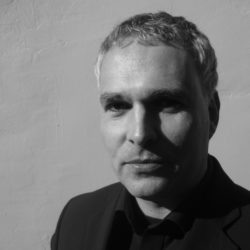
Alexander Ebner is Professor of Political Economy and Economic Sociology at Goethe University Frankfurt. Previously, he was Associate Professor of Political Economy at Jacobs University Bremen and Assistant Professor at the Chair of Public Finance and Fiscal Sociology at University Erfurt. Following his studies of economics, political science and sociology he obtained a doctorate in economics at Goethe University Frankfurt (summa cum laude). His habilitation was granted by the Faculty of the Sciences of the State at University Erfurt. International research appointments have included University of California at Berkeley, Latvian University Riga, and the Institute of Southeast Asian Studies in Singapore. His research is primarily concerned with the institutional dynamics of capitalist development, involving the matter of entrepreneurship, innovation and economic policy, paralleled by an interest in the history of economic and social theory. Corresponding publications involve papers in journals such as Journal of Economic Behavior and Organization, Journal of Evolutionary Economics, and Journal of the History of Economic Thought. He has edited and co-edited various volumes, including “The Institutions of the Market: Organisations, Social Systems, and Governance“ with Oxford University Press.
The foundation of the Society for the Advancement of Socio-Economics 30 years ago was stimulated by Amitai Etzioni’s suggestion that socio-economics should combine the specific variables studied by economists with those typically studied by other social sciences such as sociology. Over the years, this transdisciplinary conversation between economics and sociology has been submerged by academic differentiation. Sociology has provided the breeding ground for a new kind of economic sociology that addresses the social fabric of capitalist market economies. Yet its conversation with economics has been hindered by the fact that the mainstream of neoclassical economics resembles a kind of economic physics that tends to eschew the dialogue with sociology.
Revisiting the intellectual project of socio-economics therefore requires a revitalization of the conversation between economic sociology and those non-neoclassical strands of economics that are usually labelled as heterodox, reaching across the theoretical as well as normative and political spectrum from Marxian and Postkeynesian via institutional and evolutionary to Austrian economics. Adding to the rejection of neoclassical equilibrium analyses, their common ground lies in a shared vision of capitalist market economies as shaped by uncertainty, instability, novelty, conflict, and persistent change. Crucially, this vision of economic affairs also characterises the major strands of economic sociology.
The SASE mini-conference “Socio-Economics Revisited: Economic Sociology Meets Heterodox Economics” is meant to promote the conversation between economic sociology and heterodox economics. Key questions to be explored are as follows:
- What are the theoretical commonalities as well as specificities of economic sociology compared with major strands of heterodox economics, in particular involving Marxian, Postkeynesian, institutional, evolutionary and Austrian economics?
- How do economic sociology and these major strands of heterodox economics theorize commonly shared topics such as uncertainty, instability, novelty, conflict and change in capitalist market economies, among others?
- What are the prospects for a theoretical and methodological recombination of economic sociology and the major strands of heterodox economics in a commonly shared analytical framework of socio-economics?
To explore these and related questions, papers that present original and unpublished content are invited for submission. Particularly welcome are papers which take on a comparative theoretical perspective that is rooted in contemporary theorising or in the history of ideas. In addition to that, also contributions concerned with comparative methodological discussions are invited for submission. Furthermore, papers which shed light on the above questions by utilising empirical material or historical reasoning are of course also welcome as contributions. Crucially, the SASE mini-conference “Socio-Economics Revisited: Economic Sociology Meets Heterodox Economics” is conceived as an open and inclusive forum for debating the relationship between economic sociology and heterodox economics – with a view on the actual prospects of the intellectual project of socio-economics.
The Future of Algorithmic Inequalities and Organizational Dynamics
detailed info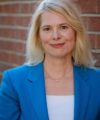 Gina Neff
Gina Neff
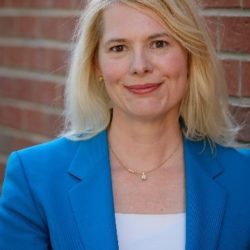
Gina Neff is a Senior Research Fellow and Associate Professor at the Oxford Internet Institute and the Department of Sociology at the University of Oxford. She studies the future of work in data-rich environments. Her most recent book, Self-Tracking, co-authored with Dawn Nafus (MIT Press, 2016), focuses on the practices and politics of using consumer technologies to track health and other everyday personal metrics. Her book Venture Labor: Work and the Burden of Risk in Innovative Industries (MIT Press, 2012) about the rise of internet industries in New York City won the 2013 American Sociological Association Communication and Information Technologies Best Book Award. She leads a new project on Data Diversity that studies the challenges of using artificial intelligence for decision making. She holds a Ph.D. in sociology from Columbia University, where she remains a faculty affiliate at the Center on Organizational Innovation. Her writing for the general public has appeared in Wired, Slate and The Atlantic, among other outlets.
 Laura Sartori
Laura Sartori
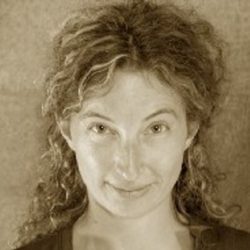
Laura Sartori is an Associate Professor of Sociology at the Department of Political and Social Sciences, University of Bologna. She studies innovation, money, and disasters. She has an on-going interest for the social and political implications of ICT’s: from digital divide and digital inequalities to more recent algorithmic inequalities. Current projects are about Complementary currencies (Sardex and other regional Italian mutual credit circuits) and Sociology of disasters and social innovation. She published “La società dell’informazione” (Il Mulino, 2012), “The Political Party as a Network of Cleavages: Disclosing the Inner Structure of Italian Political Parties in the Seventies”, (with P. Parigi, Social networks, 2014), “From complementary currency to institution: A micro-macro study of the Sardex mutual credit system” (with P. Dini, 2016); “Social Innovation and natural disasters: the case of the Casa Italia Plan” (2017); “The Social Roots of Political Inequality: Structural and Cultural Constraints on Women’s Political Participation” (in Social Politics (2017). She holds a Ph.D. in Sociology and Social Research from the University of Trento (2002). She has been research fellow at Columbia University, Stanford University and London School of Economic. She is Editor of Polis, a Journal on social and political research.
Computational techniques including machine learning, big data analysis and artificial intelligence are disrupting established methods of data collection and analysis in the social sciences. Researchers are also questioning the social, cultural and political impacts of data-driven technologies in hiring and employment, medicine, finance, and criminal justice, among many other areas of social life.
On one hand, algorithms represent new data-intensive mechanisms for coping and counterbalancing unequal structures of opportunities and power. On the other side, new data tools could exacerbate existing social, economic and political hierarchies under a guise of technocratic neutrality. Society could potentially derive enormous benefits from new kinds of data, but challenges persist. For example, in healthcare algorithmic and AI systems could also lock-in existing accumulated advantages, open new divides, such as privacy or security, and create new patterns of privilege or exploitation.
This SASE mini-conference will focus on the organizational dynamics of algorithmic systems and artificial intelligence. We welcome submissions presenting empirical evidence or developing theoretical reflections on the intersection of socio-technical systems and organizational realities. Contributions are invited on a broad range of topics, including but not limited to the following:
– Traditional sources of social inequalities such as gender, race and class origin are embedded and encoded into algorithmic systems and may lead towards even more subtle forms of discrimination, far from the promise of neutral and efficient data-driven decisions. What socio-economic mechanisms contribute to the power of algorithms to reproduce and reinforce inequality and bias? Are there organizational processes or structures that mitigate or exacerbate algorithmic inequality?
– How do users engage in and solve trust issues in algorithmic settings? What new digital competences arise as different actors and stakeholders articulate their power and influence within algorithmic organizational settings?
– How do algorithms and AI change the social and organizational dynamics of authority, agency and voice? There is a potential for reconfiguration in power practices due to AI and algorithms promised capacity to substitute human experience, judgment and expertise, as organizational and social institutions try to adjust. What emerging evidence do we have as these systems diffuse from the technology sector into more kinds of work, organizations and industries?
– Do algorithmic and AI systems support or hinder the processes of organizational innovation? What do scholars need to understand to build algorithmic systems to encourage creativity and collaboration among workers?
– How does organizational analysis help illuminate the “dark side” of algorithms? How do different actors in an organization understand and use algorithms differently? How do they adapt their daily practices in algorithmic settings and how do they modify, push back or resist algorithmic logics?
– How can socio-economic and organizational analysis contribute to showing how fairness, transparency and accountability can best be built into the design, deployment and use of algorithmic and AI systems.
– Many studies of algorithmic systems and AI have focused on the US and Europe. What cross-country empirical evidence helps scholars to understand the emerging dynamics of these systems in a wider array of settings?
Veblen Seen Anew: Power, Social Class, and the New Economy
detailed info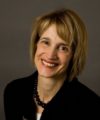 Teresa Ghilarducci
Teresa Ghilarducci
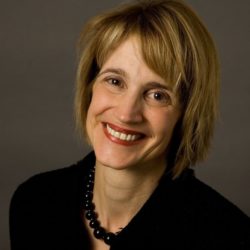
Teresa Ghilarducci holds the Bernard L. and Irene Schwartz Chair in economic policy analysis at The New School for Social Research. She is the author of numerous books published by Princeton University Press, MIT University Press, and Columbia University Press. Her latest book, co-authored with the Blackstone Group’s Tony James, argues our financialized pension system destabilizes the macro economy and fails to provide equitable, adequate and efficiently delivered retirement income. Her research areas concern automatic stabilizers, financialization, and labor market dynamics.
Ghilarducci joined The New School in 2008 after 25 years as professor of economics at the University of Notre Dame. From 2007 to 2009, she served as Wurf fellow with Harvard Law School’s Labor and Worklife Program. Since 2009, Ghilarducci has served as a court-appointed trustee to the UAW Medical Trust Board, which manages $60 billion dollars for over 800,000 members. Since 2002, she has served a member of the General Accounting Office Retirement Policy Advisory Panel. Ghilarducci holds a Ph.D from the University of California Berkeley.
 William Milberg
William Milberg
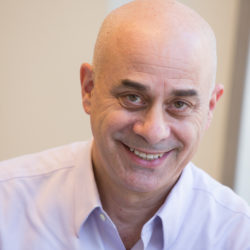
William Milberg is Dean and Professor of Economics at the New School for Social Research, where he also serves as Co-Director of the Heilbroner Center for Capitalism Studies. His research focuses on the relation between globalization and income distribution, and the history and philosophy of economics. He has worked as a consultant to the UNDP, the ILO, the UNCTAD and the World Bank. His most recent book (with Deborah Winkler) is Outsourcing Economics: Global Value Chains in Capitalist Development (Cambridge University Press). A previous book, The Crisis of Vision in Modern Economic Thought (Cambridge University Press) was co-authored with the late Robert Heilbroner. He serves on the Editorial Board of Politics and Society and The International Review of Applied Economics.
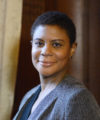 Alondra Nelson
Alondra Nelson
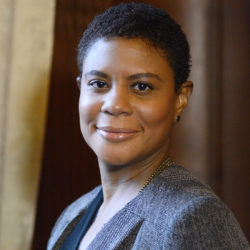
Alondra Nelson is president of the Social Science Research Council and professor of sociology at Columbia University. A scholar of science, technology, and social inequality, she is the author most recently of The Social Life of DNA: Race, Reparations, and Reconciliation after the Genome. Her publications also include a symposium in the British Journal of Sociology on history, genealogy, and the “GU 272,” and the books Body and Soul: The Black Panther Party and the Fight against Medical Discrimination; Genetics and the Unsettled Past: The Collision of DNA, Race, and History; and Technicolor: Race, Technology, and Everyday Life. In 2002, she edited “Afrofuturism,” an influential special issue of Social Text.
The New School will celebrate the 100th anniversary of its founding in 2019. Thorstein Veblen was one of the founding faculty members of The New School in 1919. Veblen was a major social thinker at the time, having authored The Theory of the Leisure Class (1899), The Theory of Business Enterprise (1904), Higher Learning in America (1918), and The Place of Science in Modern Civilazation and Other Essays (1919). Veblen’s relevance has again become clear today, as many of the issues that concerned him – consumerism and debt, social class formation, technology and power in the workings of the modern industrial enterprise — have resurfaced in the 21st century as pressing issues. The purpose of this mini-conference will be to revisit Veblen’s contribution and to reformulate his approach to power, consumerism, industrial enterprise, democracy and capitalist development in light of the current moment in the US. How does consumerism create status today? What is the relation between contemporary consumerism and labor market conditions in the era of the platform economy? What is the role of debt in the formation of social class and in the determination of economic growth? What does the re-emergence of monopoly power by a few firms mean for economic policy and economic democracy? How has the rise in income and wealth inequality changed the role of consumption and status in the way class is constructed and narrated? How can neuroscience, macroeconomic modeling, ethnography, critical race theory and other modern approaches help us to gain new insights into the issues that Veblen explored in the first part of the twentieth century.
One driver of the current levels of debt accumulation was wage stagnation, which prompted less affluent households to borrow to finance consumption expenditures. Another was the social imitation central to Thorsten Veblen’s emphasis on emulation effects in consumption behaviour. This results in less affluent households aspiring to higher levels of consumption in order to “keep up with the Joneses”. Veblen’s emulation effects contribute to a potentially unsustainable process of debt accumulation that makes the entire economy prone to a “sudden stop” of credit-financed consumption spending. As the Great Recession demonstrated, crises of this nature can create near-depression conditions even in the event of massive policy interventions – frightening testimony to Thorsten Veblen’s relevance today.
Work and the Feeling of the Future
detailed info Ariel Ducey
Ariel Ducey
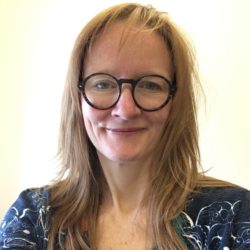
Ariel Ducey is an Associate Professor in the Department of Sociology, University of Calgary, Canada. Her research centers on issues of responsibility, ethicality, knowledge, and emotions in the institutions and practices of health care and medicine. Her book, Never Good Enough: Health Care Workers and the False Promise of Job Training (Cornell 2009), examined the creation and justification of a billion-dollar industry for training, upgrading, and multiskilling unionized, frontline health care workers in New York City, in the midst of widespread restructuring of the health care sector. She also published two book chapters on affective and caring labour in this training industry. More recently, she worked for several years with an interdisciplinary research group based at the University of Toronto examining the processes around medical device adoption, regulation, and surveillance in Canada. Her current research, funded by the Canadian Institutes of Health Research, focuses on pelvic floor surgery and the adoption of new devices and techniques into surgery, including transvaginal mesh.
 Karen Gregory
Karen Gregory

Karen Gregory is a digital sociologist, ethnographer, and lecturer in the department of sociology at the University of Edinburgh and Programme Director of the MSc in Digital Society. Her current research explores the possibilities for solidarity in a digital economy, conducting interviews among Deliveroo riders in Scotland. Before coming to Edinburgh, Karen was a lecturer in Division of Interdisciplinary Arts and Sciences at The City College of New York, where she developed and ran the City Lab, a digital collaboration that brought faculty together to develop and highlight digital resources and support for writing, research, communication. She is co-editor of Digital Sociologies (Policy Press, 2016) and her work has appeared in American Behavioral Scientist, Triple C: Communication, Capitalism, and Critique, The Sociological Review, and Women’s Studies Quarterly.
 Elizabeth Wissinger
Elizabeth Wissinger
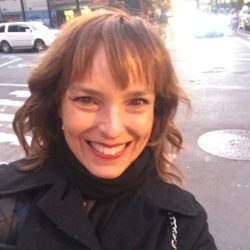
Elizabeth Wissinger is a Professor of Fashion Studies and Sociology. She is a faculty member of the Masters of Arts and Liberal Studies program at the Graduate School and University Center and the Department of Social Sciences at BMCC/CUNY. She has published and spoken about fashion, technology, and embodiment, in the U.S. and internationally. Her book, This Year’s Model: Fashion, Media, and the Making of Glamour (NYU 2015), tracks how emerging technologies shape the demand for varying bodily ideals, which fashion models promote by doing “glamour labor,” the work to appear as attractive, exciting, and cool in person as one’s curated and filtered online self. Her current research focuses on how the coming fusion of wearable technologies with biotech are impacting gender, data privacy, and embodiment.
What cannot be fathomed may be felt. This panel will focus on how the nature of what the future holds may be enfolded in the present in registers that cannot necessarily or completely be articulated: the registers of bodies, emotions, affect, sensations, spaces, capacities, and the virtual. We are interested in bringing together scholars whose work examines the way in which the feeling of the future exists in the work and labor of the present. This includes especially how the feeling of the future defines and reconfigures inequalities, along the lines of class, gender, sexuality, race or ethnicity, or along other lines, and thereby impacts what is experienced as possible/not possible and for whom, and what solidarities are formed/not formed.
All methodological and conceptual approaches are welcome. We hope to bring together scholars from multiple disciplines who share a common interest in the areas of what may be felt, to consider how our training and trajectories as researchers may lead to differing conceptualizations of these topics, but also to see what kinds of overlaps and compatibilities are generated by a more concrete concern with issues of work and labor.
Eventual organization of sessions will reflect the papers submitted, but potential themes for panels and papers include:
- Ways in which the future may be felt but not fathomed in work and labor
- The effects of digital technologies and platforms on learning to labor, especially embodied and emotional aspects of labor
- The effects of digital technologies and platforms on what embodied labor is
- New forms of division and segmentation in labor markets on the basis of what is and can be felt, or affected, or embodied
- Imaginaries or creative/artistic visions of alternatives to work or the rejection of work
- The effects of politics and programs of austerity on the feelings of work (in any area, but notably including work in universities)
- The meaning and impact of movements such as #MeToo in relation to workplace cultures and the organization of work
